



 Art and Photography work by Sixth Form students
Art and Photography work by Sixth Form students







 Art and Photography work by Sixth Form students
Art and Photography work by Sixth Form students


Thank you for your interest in the Sixth Form at Thomas Alleyne’s High School. As Headteacher of the school, I am proud to be part of this community of students and staff learning together, developing our knowledge and skills for the future. Our aim is to provide the opportunities and environment to enable every Sixth Former to reach their academic potential. In order that they gain the skills to enable them to proceed to Higher Education or employment, lead fulfilled lives and contribute to their society.
This is an important stage in your education when you will be making important decisions about your future. You will want to ensure that you are in the best possible position to make the right choices. At Thomas Alleyne’s you will have the opportunity to do just that. We have an excellent track record of success that enables students to take up their first choice of University, apprenticeships or career, whatever that might be. We offer the broadest range of subjects to meet individuals’ needs alongside excellent support and guidance provided by experienced staff who understand how to make the most of your abilities and talents. We offer all students applying to the Sixth Form an individual interview to discuss the most appropriate path for you.
Life in the Sixth Form is about much more than academic qualifications. As you read this prospectus, I hope you will get a flavour of the many extra-curricular activities which are available to you, and the responsibilities you can assume within the life of the school. Perhaps you will help lead house drama or music, lead the work of the school council, take part in work experience in France, embark on a month’s expedition to a more remote part of the world or perhaps you will mentor GCSE students, helping them to achieve their potential. You could be a prefect or organise fund raising events for the whole school, or represent your house in the extensive range of house competitions. The possibilities are endless.
Joining the Sixth Form at Thomas Alleyne’s will certainly offer you a varied, challenging, exciting two years. I look forward to welcoming you.
Mrs Julie Rudge Headteacher
The Sixth Form years are the most exciting phase of your school education. Developing the whole individual is our core purpose, and we do this by providing opportunities to pursue ambitions, interests and passions and develop skills and talents beyond our academic curriculum through a wide range of enrichment activities. There is a strong sense of community amongst our Sixth Form and our students thrive in a welcoming and purposeful learning environment, enabling them to transform into confident, well-rounded individuals with the character and skills to succeed in the next stage of their lives.
Every student in the Sixth form is allocated an experienced academic tutor who monitors their individual progress and helps them to plan the next stage of their education or career whilst supporting them pastorally. The Future Intentions Programme occurs throughout year 12 and 13 and comprises of a range of events aimed at supporting our learners to make fully informed decisions about their future – whether that is continuing into Higher Education, undertaking an Apprenticeship or entering employment.
We are proud that our Sixth Form can facilitate and support students in achieving the top grades required to pursue Post-18 options in Apprenticeships in companies such as Unilever, AstraZeneca, Land Rover, Total Enterprise Solutions, Ernst and Young, Rolls Royce, EDF energy and Barclays Bank. The majority of our learners choose to apply to University, and for 2023 entry, 26% of our University applicants secured a place to study at Russell Group Universities.
We are always happy to welcome applications from students who have not previously benefited from an education at our school. Our students are a real source of pride to us and you can guarantee a friendly and warm welcome from them.
We very much look forward to working with you, to meet the demands of Sixth Form life and beyond. We have high expectations of all students who join us in the Sixth Form and you will be challenged to meet those expectations, to ensure you are well placed to succeed in a competitive world.
Mrs Emma Young Assistant Headteacher, Head of Sixth Form & Careers Lead Email: sixthform@tahs.org.uk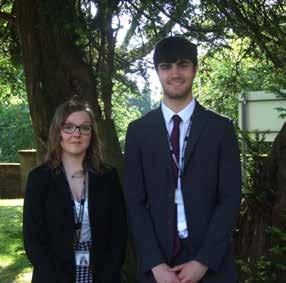
‘The Sixth Form has undoubtedly been the most rewarding experience and I have embraced all the opportunities presented to me. There is a great sense of community and you are supported in every aspect of your development.’Sixth Form Student
The possibilities are endless. Joining the Sixth Form at Thomas Alleyne’s High School will certainly offer you a varied, challenging and exciting two years.
Assistant Headteacher, Head of Sixth Form
Teaches: History
Main Responsibilities: Post-16 accountability and budget holder. Data/results, UCAS Super User, Post-16 Teaching & Learning, Senior Prefects, Sixth Form OFSTED, Induction, 6th form choices/transition, tracking and monitoring the ‘at risk’ group, Discretionary Bursary Fund (DBF), Post-16 Marketing and social media. EPQ. Sixth Form Safe Guarding. ECO School staff leader. Line manager Business, Drama and Design Tech
Lower School House: Torrance/Whitmore
Deputy Head of Sixth Form
Teaches: English Language
Main Responsibilities: Deputising for Mrs E Young, Post-16 Pastoral Activities/TAP, 6th Form Literacy, GCSE English Re-sits, Community Service/Lions, Post-16 Mental Health, SEND link, Sixth Form Pastoral support, Literacy and Reading Mentors
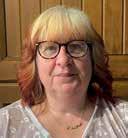
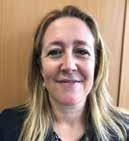

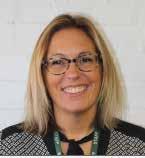
Lower School House: Elkes
Deputy Head of Sixth Form

Teaches: Science
Main Responsibilities: Deputising for Mrs E Young, GCSE Maths Re-sits, tracking and monitoring of Year 12 student progress and liaising with subject departments. Sixth Form Pastoral support, attendance tracking, Student Subject Ambassador Leads Lower School House: Orme
Sixth Form and Careers Co-ordinator
Main Responsibilities: CENSUS, 6th Form Charity link, Post-16 Prospectus, Post16 Work Experience, External student contact and support, Unifrog super user, CEIAG co-ordinator, Sixth Form parents evening, Future Intentions Week, Open Evening
Sixth Form Administrator
Main Responsibilities: Sixth Form Admin support, attendance monitoring, parent communication, Discretionary Bursary Fund (DBF), Post-16 section of the TAHS Round Up
Mrs E Young Miss K Thorley Mrs K Bell Mrs J Griffiths Mrs L WaltonThomas Alleyne’s High School has been established in Uttoxeter for over 450 years and for over 150 years, there has been a Sixth Form here.
We consistently achieve high standards in our post 16 provision and are proud of the part our Sixth Form plays in the life of our school. Thomas Alleyne’s High School is truly comprehensive and with over 1,025 pupils in the school, the Sixth Form makes up about 25% of our students, making our Sixth Form one of the largest in Staffordshire.
Life in the Sixth Form reflects our core ideology of fostering progress; by ensuring high expectations lead to higher standards, Individuality; through promoting personal development and individual support, and Opportunity; by creating new opportunities and embracing change.
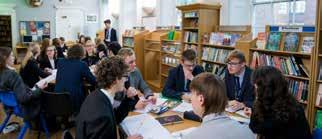
Our Sixth Formers act as role models for the rest of the school and are expected to live the values of the whole school, by embracing openness and honesty, as well as developing a strong sense of social responsibility. We develop our young people to be balanced, reflective, openminded and knowledgeable and who have high expectations of themselves.
Our track record of high attainment is built on years of success, where our Sixth Formers benefit from a business-like and professional environment and are encouraged to lead their own learning under the guidance of dedicated staff.
Each year we celebrate the success of our Year 12 students by holding a graduation ceremony, which takes place in the Summer term.
1. Proven track record of achieving strong results on both A Level and BTEC courses.
2. Excellent student destinations due to specialist individual, advice and guidance (IAG).
3. Super-curricular opportunities are offered to stretch and challenge all our learners.
4. We have high expectations in all that we do.
5. All timetables have designated enrichment sessions including EPQ and Sixth Form 7 to individually develop the ‘whole’ person.
6. Our learners develop transferable skills which facilitate their personal future Intentions.
7. Sixth form students can choose from a vast range of extra-curricular activities.
8. A discretionary bursary fund (DBF) is offered eligible students to support and enhance their learning outcomes.
9. High levels of parental engagement and support.
10. First-rate facilities provide an effective learning environment.
We are proud to host our annual Future Intentions event for all Year 12 students for a week in July. During this week we collapse the timetable and provide a variety of bespoke sessions designed to support students with their future intentions. This successful event is designed to help our Year 12 students make informed decisions about their post-16 pathways which may include university, work or apprenticeships. It is also an invaluable time to learn more about Student Finance, Unifrog and the UCAS process.
EXAMPLE
Mrs Dodd
All Year 12 in Canteen
Charity Fund Raising Dougie Mac presentation followed by charity ideas in form groups
All Year 12 in Theatre
Sexual Health, Healthy Relationships and C-card Presentation in theatre which will continue after lunch.
All Year 12 in Theatre
Thriving At Uni Nottingham Trent Uni
All Year 12 in Theatre
Wednesday 13th July Year 12 Graduation Including Lions YLIS Presentations
All Year 12 in Theatre
Alumni/local business carousel event
10.40am – 11.10am
11.20am – 11.50am
Students to attend their booked Eventbrite sessions
Alumni/local business carousel event
12.00pm - 12.30pm Lunch 12.30pm - 1.10pm
1.20pm - 1.50pm
Students to attend their booked Eventbrite sessions
Sports Event Teams compete in fun games for the trophy. Please sign up if you haven’t already. Bring money for snacks and lollies. Top field. All students to attend.
Thursday 14th July
Mental Health & Wellbeing Samaritans, Damon Preece
9.00am – 9.15am
Mrs Varga’s mindfulness
9.15am – 9.45am
Mr Robinson-White’s university survival session
9.45am – 10.15am
All Year 12 in Theatre
Driver Safety
Staffordshire Fire Service
All Year 12 in Theatre
Positive Mental Health
With counsellor
Jayne Differ
How to destress; how to recognise strengths and deal with weaknesses (being resilient); dealing with difficult decisions; how to help a friend.
All Year 12 in Theatre
Interview Skills
1.50pm – 2.30pm
With Mr Davies. Hone your interview technique including questions to look out for, research to be done beforehand, and how to make a positive impression.
Amazing Apprenticeships
From 2:30pm
All Year 12 in the Theatre




New for this academic year we have a Sixth Form reading and form mentor scheme which will be led by Roisin Kavanagh and Charles Fradley who work will work closely with Mrs Dodd (Deputy Head teacher) to support Year 9 tutor groups to provide weekly reading activity support in form groups running interactive reading activities, alongside mentoring in the form of guidance and advice. You will need resilience and commitment to take on this role; you must also have the personal qualities of being caring, approachable and reliable.
You will work with at least one other Reading and Form Mentor and will be expected to attend one weekly form session with the Year 9 tutor group you are assigned to. The hope is that over the course of the year, you will get to establish a relationship with the students in your allocated form group, providing a source of support, whilst playing a vital role in encouraging our year 9 students to foster a love of reading. Each week you will be responsible for co-leading the pre-planned reading activity with the form tutor. Using a variety of tools and strategies, you will need a constant approach when fulfilling this key role within our school community.







A wide range of form time activities are delivered daily each week, ranging from PSHCE to revision strategies to future intentions. Form time is a mandatory part of the Sixth Form and attendance forms part of the Sixth Form contract. Not only do the team of tutors have a statutory duty to deliver a programme covering areas such as; religious and one community concepts, social and mindful resources as well as academic support, form tutors also contribute towards UCAS applications based on their knowledge of students’ attendance, interests and achievements.
Towards the start of Year 12, form tutors will assist students finding and logging their mandatory work experience. Important messages around exams, opportunities and the school calendar are also delivered via form time which is a positive way to start the day.
An opportunity to make a real difference to the lives of others lies in the role of a Sixth Form Reading coach. Students in years 12 and 13 who undertake this important role will be allocated a ‘Tier Two’ reader in year 9. Reading coaches will work 1:1 with their allocated pupil to support them in developing their reading and oracy skills by listening to them read at least once a week. Given the importance of this role, and the nature of working 1:1 with year 9 pupils, specialist training will be provided which will further develop your repertoire of skills. The role of a Sixth Form Reading Coach will require patience, organisation and a genuine desire and commitment to make a difference to the lives of others.
The Sixth Form Council is led by Katie Fuller and Joe Hall. They meet regularly to discuss all issues raised by either Sixth Formers or staff.
COMMUNITY SERVICE:
One of the important features of the Sixth Form is it’s strong commitment to the links developed with the local community. Students are able to take part in a range of activities during the school term which benefit themselves and the local community, building valuable contacts and life experience.
MOOCs:
A MOOC (‘massive open online course’) is a free online course run by Universities worldwide aimed at unlimited participation and open access via the web. At Sixth Form, students are given the opportunity to participate in University courses that are of interest to them and connect with the wider educational world with support from Sixth Form and subject tutors. Many courses have certification which can be included in the student’s UCAS applications.
Thomas Alleyne’s has a proud history of facilitating international expeditions with providers such as World Challenge and Outlook Expeditions. Our first expedition group of 20 world challengers visited Costa Rica in 2008, and since then to Borneo and Tanzania. Students spend a month doing a variety of projects, which can include working within a local community or participating in ecological preservation projects. This is a highly rewarding experience for students and provides an amazing set of transferable skills.
Having had to put our international expeditions on hiatus during the Covid pandemic, we are delighted that in the summer of 2023, we will be taking a group of 20 students to Morocco with Outlook Expeditions, where they will experience the local culture, complete a community project, summit the highest mountain in North Africa (Toubkal) and enjoy some well-deserved rest and relaxation. We are confident that this will be the first of many future expeditions for our students.
Ella Russell and Riley Smith are Subject Student Ambassador Leads. Subject Student Ambassadors are students that work with the teacher at open evenings to share aspects of the curriculum and answer any questions that parents or students have, as well as this these students support the
teacher within the classroom, working alongside the students in Years 9 and 10. They may help with revision strategies, completing projects, class activities and being a mentor for the students future intentions which provides opportunities for the students and the Subject Student Ambassadors to develop skills and strategies for problem solving, increasing their levels of resilience and supporting their learning community.
The Subject Students Ambassadors will be supporting the Heads of Department with transition activities. These students are role models within the subject and will enable students in Years 9, 10 and 11 to find out more about the subjects in Year 12 and consider their own future intentions.
SIXTH FORM 7: Students are expected to undertake 7 hours of additional study time per subject a fortnight. This work may be in the form of TED talks, additional reading, revision, flipped learning etc. which will be set by their subject teachers to promote independent learning. This is in addition to homework which is teacher assessed work. Students will need to complete a weekly plan of how they are going to achieve this which will need to be shared with and checked by their Academic Tutor.
HOLOCAUST EDUCATION TRUST:
Each year two students are invited by the Holocaust education trust to take part in the lesson from Auschwitz course. This is a powerful learning opportunity for students who the share their experiences with the rest of the school.
“Going on a 24 hour trip to Auschwitz with the Holocaust Educational Trust was the most enriching opportunity that I have ever had. The lessons learned on the trip sparked a new passion for history, one that has influenced my post-18 options.
As part of my ‘lessons from Auschwitz’ next steps project, I had the pleasure to meet Holocaust survivor, Martin Stern, when I invited him in to share his story with the Sixth Form and some Year 9 and Year 10 students. His memories and the sights, that I saw first hand, will stay with me forever.”
EDUCATIONAL VISITS:
Educational visits are integral part of many post 16 residential trips. Other visits combine education and recreational travel recent destinations have included Prague and the battlefields in Normandy. There is a learner support and the students

experiencing financial difficulty in order for them to access these trips.
ECO TEAM:
Overseen by Mrs Young and led by Sixth Form student Sarah Wild and her team. Focusing on working with the school and the local community on environmental concerns, this will include reducing our use of plastics, reducing the amount of paper we use and working to improve our green areas around the school and to improve the biodiversity within school grounds. The team comprises of students from all year groups who will work on projects and with our feeder schools.
GOLD DUKE OF EDINBURGH AWARD SCHEME:
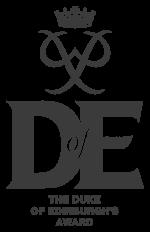
Each year large numbers of year 12 and 13 students embark on the Gold Duke of Edinburgh award scheme which is highly valued by universities and employers. It also allows students to broaden their experience of huge variety of activities and opportunities as well as volunteering within the community.
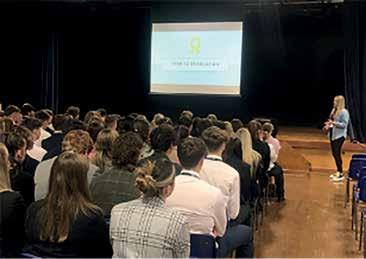
EXTENDED PROJECT QUALIFICATION (EPQ):
The EPQ will allow you to investigate an area of your choice. All students studying 3 subjects in year 12, except Triple Health and Social will have the EPQ as part of your timetable in Year 12. This could be based on your future career, your hobby or just something that fascinates you. You will build your planning, research and independent learning skills to produce a piece of drama or art, and advertising campaign or a website.
Full details about this qualification can be found on Page 26 in the A Level subject section.
OUR FOREVER CHARITY:
The Sixth Form have adopted the Douglas Macmillan Hospice as their chosen “forever” charity in memory of the much missed languages teacher and Deputy Head of 6th form Mrs Reaney.

Supporting this worthy cause is Thomas Alleyne’s way of giving something back as DMH gets very little funding from the Government and relies on donations from the public. Mrs Reaney was a treasure to the school and by ‘adopting’ DMH as our Forever Charity her memory will be remembered in year to come. This is led by Xanthe Simmonds and Finn Done.
THE CHALLENGE:
Each form group has the task over the academic year to raise a minimum of £100 for DMH.
In the Common Room there is a charity board where information about DMH and funding raising can be found.
ROTARY YOUTH LEADERSHIP AWARD (RYLA): Rotary Youth Leadership Awards (RYLA) is an intensive leadership experience organized by Rotary clubs and districts where you develop your skills as a leader while having fun and making connections.

What are the benefits?
Connect with leaders in your community and around the world to:
• Build communication and problem-solving skills
• Discover strategies for becoming a dynamic leader in your school or community
• Learn from community leaders, inspirational speakers, and peer mentors
• Unlock your potential to turn motivation into action
• Have fun and form lasting friendships
• What’s involved?
RYLA events are organized locally by Rotary clubs and districts for participants ages 14-30. Depending on community needs, RYLA may take the form of a one-day seminar, a three-day retreat, or a weeklong camp. Typically, events last 3-10 days and include presentations, activities, and workshops covering a variety of topics
UTTOXETER LIONS:
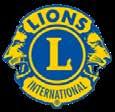
Sixth form students at TAHS are encouraged to participate in the Lions Young Leaders In Service award. The Lions philosophy is that ‘Young people who volunteer mature into adults who serve.’ Through the Lions Young Leaders in Service Awards, Lions clubs encourage youth in the philosophy and habit of service to the community. This opportunity benefits youth by developing life skills, providing an acknowledgement from an international association that can be used for University and job applications, and increasing visibility and awareness of Lions Clubs International and its various youth programs. The benefits to Lions include opportunities to share their love for service, build community relationships, engage young people to effect change, and invite youth to partner with hands-on projects.’
Students can log service hours over a twelve month period with the goal of completing either 25, 50 or 100 hours of service to their community. Certificates and badges are just part of the reward. Any students who are interested should contact Mrs Bell or Mrs Walton.
Roisin Kavanagh
Role: Literacy Lead
Studying: English Literature, History, Psychology and recently completed an EPQ.
Advice for Year 11: Don’t overwhelm yourself with revision, just do little and often! Enjoy the time you have in high school, it’s over before you know it.
Plans for the future: I hope to do psychology at university or a degree apprenticeship relating to one of my A Levels.
Joe Hall
Roisin Kavanagh
Finn Done
Xanthe Simmonds
Charles Fradley
Katie Fuller
Finn Done
Role: Charity Representative
Studying: Maths, Further Maths, Physics, Design Technology
Advice for Year 11: Revise all throughout the year not just in the last few weeks before exams
Plans for the future: Study Computer Science at University
Katie Fuller
Role: Student Council Leader
Studying: Geography, Business, Design and Technology
Advice for Year 11: Find a healthy balance between your school and social life. Don’t put too much pressure on yourself, just do as well as you can.
Plans for the future: Go on to study Human Geography at University
Joe Hall
Role: Head of School Council
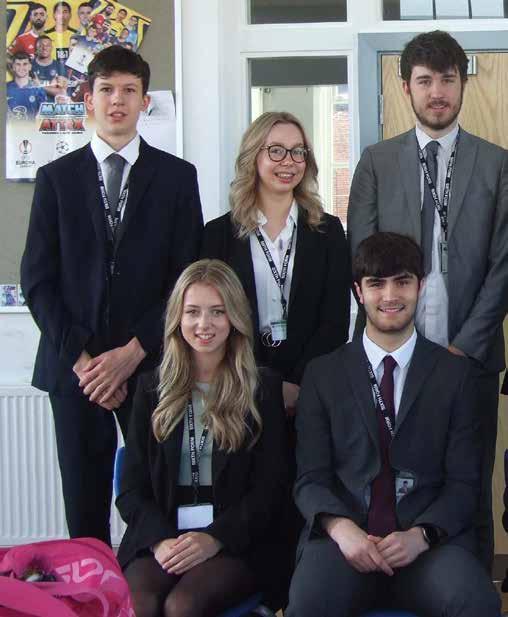
Studying: Maths, Further Maths, Physics and Chemistry
Advice for Year 11: Don’t stress too much, and stay organised
Plans for the future: Complete a degree apprenticeship
Rhiannan Taylor
Role: Head Girl
Studying: Maths, Physics, History and Psychology
Advice for Year 11: Make the most of your time at school. Don’t stress and give yourself a break. Look into possible career interests, so you can pick A levels suited to the career.
Plans for the future: I hope to become an Officer in the RAF, after completing a degree and going to a University Air Squadron.
Harriet Ratcliffe
Tom Newbury
Rhiannan Taylor
Tom Lindsay
Tom Newbury
Role: Head Boy
Studying: Maths, Further Maths, Chemistry, Physics
Advice for Year 11: Start revision early - little and often. Find a balance between school work and personal life
Plans for the future: Study maths at university
Harriet Ratcliffe
Role: Deputy Head Girl
Studying: Biology, Chemistry and English Literature
Advice for Year 11: Make your revision material well in advance to save stress as exams approach. Plans for the future: University or Degree
Apprenticeship and lots of travelling.
Xanthe Simmonds
Role: Charity Rep
Studying: Maths, Physics and DT
Advice for Year 11: DON’T PANIC! Start revising early, tell yourself you’re going to do a bit of each subject an evening a week then build it up as you get closer to exams. In the end though, if everything goes bottom up, it’s not the end of the world – you’ve tried your hardest. Also, take up opportunities whenever you can, they’re really good for learning some of the soft skills you won’t learn in school.
Plans for the future: I would like to be a Renewable Energy Engineer. I’m going to apply for both degree apprenticeships and uni so I don’t put all my eggs in one basket. I would also like to be a part time firefighter!
Tom Lindsay
Role: Deputy Head boy

Studying: Maths, Further Maths, Physics
Advice for Year 11: Don’t leave revision until the last minute.
Plans for the future: Study Maths at university
Charles Stewart Fradley
Role: Literacy Lead
Studying: Geography, History, Mathematics, Ethics and Philosophy
Advice for Year 11: Work and Study hard because it will be worth it in the future
Plans for the future: Go to University
Use your estimated grades to guide you to the most appropriate Post-16 Pathway
At least 5 GCSES 6-9* and/or BTECs M and above
At least 4 GCSES 6-9* and/or BTECs M and above
At least 4 GCSES 5-9 and/or BTECs L2P and above
A LEVEL ROUTE
Choose a combination of 3 or 4 A Level subjects + Enrichment Sessions
BLENDED ROUTE
Choose a combination of A Levels and Single BTECs + Enrichment Sessions
APPLIED ROUTE
Choose a combination of 3 Single BTECs OR BTEC Extended Diploma in Health & Social Care
APPRENTICESHIPS (POST-18)
UNIVERSITY DEGREE
EMPLOYMENT
EMPLOYMENT WITH TRAINING
GAP YEAR/VOLUNTEERING
FURTHER EDUCATION
There are a wide range of courses on offer in the Sixth Form at Thomas Alleyne’s High School. It is essential that you choose the right courses to allow you to move onto the career path or further study that you aim to pursue after you leave the Sixth Form.
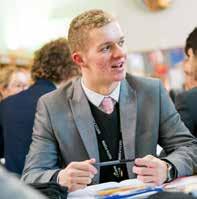
Some questions to consider when choosing your Post-16 courses:
• Enjoyment – Look at your level of interest in each of your existing subjects: will it carry you through the length of the Sixth Form course?
• Breadth – Are you choosing a mix of subjects that is so specialised that it leads in only one career direction? If you are not yet certain what you wish to do after Sixth Form, it would be sensible to keep as many options open as possible.
• Academic Ability – Do you have the ability in the subject? Think honestly about how you have performed over the last two years, what are your estimated grades? Consider the advice and course recommendations offered by your subject teachers.
• Further study – If you are planning to go on to Higher Education, check the subject requirements on the UCAS website e.g. Medicine requires Chemistry and Engineering requires Maths etc.
• Career – If you know your career direction, check out what you will need; but keep in mind that you may change your mind.
• Entry requirements – Will you meet the entry requirements for the courses that you are considering in the Sixth Form?
It is important that you select subjects or courses where you will be successful alongside being able to enjoy your learning experience. Consider your Post-16 Future Intentions Interview; speak with existing Sixth Form students and subject teachers about what the courses involve. All of this will enable you to make an informed decision about which of our learning pathways you are most suited to.
There are three Post-16 pathways offered within the Sixth Form which comprise of an A Level only route, an Applied only Route and a Blended Route which comprises of a combination of A Level subjects alongside at least one applied subject.
All pathway routes lead to a range of destinations post-18.
Thomas Alleyne’s has helped me to develop both academically and as an individual, providing opportunity and ambition throughout my time here.
Career development is a continuous process for students in the Sixth Form and considerable attention is paid to all aspects of the student’s future.
Advice and counselling is initially undertaken on an individual basis by the student’s academic tutor and this complements careers sessions.
Students have unrestricted access to both the Sixth Form and main school careers libraries. Students are encouraged to achieve their full potential, to make the most of their abilities and to undertake relevant work experience to enhance their chances in any application they may make.
The Sixth Form offers so many opportunities for you to take your career on to the next stage be it higher education, training or employment. We have much to offer and so do you. With a lot of hard work, commitment and cooperation from all of us, the next two or three years could be some of the most enjoyable and rewarding of all.
Students are encouraged to take part in study courses which are held at various times in the school year. Some of these courses are aimed at specific career areas and since they are put on by outside agencies can be quite expensive. Nevertheless, students with a genuine career interest should carefully consider the advantages to be gained from attending such a course - both Cambridge and Oxford Universities have Law courses in the spring term, specialist courses in Psychology, Veterinary Science, Medicine and Forensic Medicine are all held at local universities.
Visits to University Open Days and to Careers Fairs are made at the appropriate time of the school year and there are regular visits into school by speakers from universities, colleges and industry. The school has an excellent record of placing students in Higher Education and employment.
We offer Unifrog all of our Sixth Form students and their parents/carers who are able to access this platform via an individual log in 24 hours a day so that they can manage their own person Future Intentions journey.

Unifrog brings into one place every University course, Apprenticeship, and college course in the UK, as well as other opportunities, such as MOOCs and every college at Oxford and Cambridge. Support for personal statement writing is also provided.
The platform makes it easy for students to record what they are good at, and write their CVs. Personal Statements. Teachers can give their students feedback, and write references. Everyone knows his or her next task, and nothing gets lost as it all completed online.
For more information please visit: www.unifrog.org
For any further information and support please contact Mrs Walton on walton@tahs.net or futureintentions@tahs. org.uk.
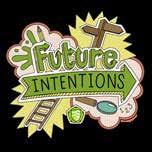
During Year 12 all students will undertake a week’s work experience. This is a fantastic opportunity for all students to experience what it is like to work in potentially the career of their choice. Students are encouraged to find placements for themselves but the Sixth Form team are always on hand to help and guide students with their placements as it’s never too late to start thinking about where to apply. It’s a wonderful opportunity for students to witness first hand what the world of work has to offer. This week is also useful for potentially discovering what type of work students do not then wish to pursue
Work experience is a hugely beneficial and positive experience which will help students to build their confidence and communication skills for life after Sixth Form and beyond.
I found the help given to me by the Art teachers has been very helpful in getting me ready for my next course, they always make the time to advise me on how best to refine work. It’s a lot of work but it’s worth it.
Head of Department: Mr G Robinson-White robinsonwhite@tahs.net
Art, Craft & Design A Level means you can must work in 2 or more ‘pathways’ from the following areas ‘Fine Art’, ‘Graphics’, ‘Textiles’, ‘3D’ and ‘Photography’. In A-Level Art, Craft & Design, here at TAHS, students will use a variety of techniques and media and explore different artists/crafts people/ designers work whilst creatively developing their work in 2D and 3D. It is a broad and flexible course that allows students to ‘opt’ into different genres of art, reflecting their interests and often ambitions beyond the 6th form. This course is a good combination with A-Level Photography, for students pursuing careers in the visual creative arts.
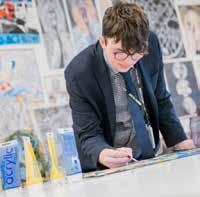
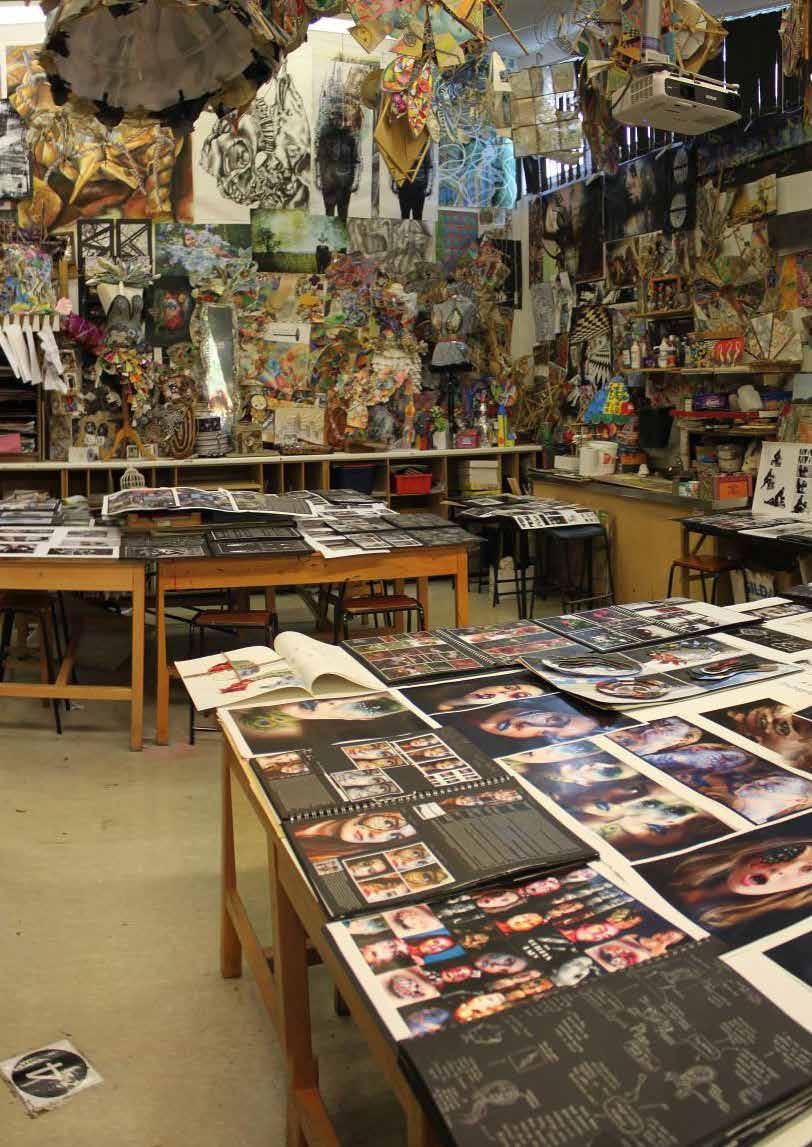
Students need to have achieved at least Level 5 (preferably 6) in Art if taking A Level Art. Also have an ability to be creative, explore and evaluate Artists work in visual and written formats. Students must have an interest in the work of Artists and Photographers.
CORE SKILLS
Creativity, independence, self-motivation and ability to be analytical in visual and written formats.
A Levels in Art and Photography begin with a comprehensive coursework Unit worth 60% (followed by and exam unit worth 40%). Both subjects have foundation induction stages lasting approximately until February in Y12, After which students will devise their own personal investigations to develop through the remainder of Y12 and Y13 leading up to the final deadline in late January
of their final Y13 year. Students will develop an extensive repertoire of skills throughout their A Levels which will strengthen their creative practice alongside contributing towards their final grade. A wide range of topics are covered in the induction work following themes that will guarantee quality outcomes and a strong portfolio full of diverse work.
Support is given in portfolio sessions and discussions between pupils and teachers to devise the most meaningful and appropriate career paths to undertake. Guidance is given when advising students for the best routes to pursue and how to effectively prepare for future intentions, courses after A Level and intended career paths. Any creative career is strengthened by a strong Art and Photography A Level course portfolio, due to the personal and creative nature of students’ work.
We prepare and support students with their portfolios, to ensure they follow a meaningful and sophisticated format that is desirable and competitive for interviews and future aspirations.
Students are encouraged to make use of the several visits to enrich their work. In September Photography and Art students will travel to at least one gallery / location and will work from direct observation. All work created during the visit will impact on student’s induction work and creative development. We encourage visits to the UCAS “Create Your Future” event in November, to look at all the universities and colleges that specialise in art and design courses so that students can be more fully informed of art related careers and courses.
Life Drawing Workshops, The Arts Society Award and Guest Speakers for the Arts are experiences that are incorporated into the department where possible to offer enhanced opportunities for our students to benefit from other forms of exposure to specialised practice. We also offer support and guidance for students who are in the process of creating both physical and digital portfolios for prospective university and college applications. Both students and Universities have commented on the strength and quality of our portfolio support and submission.
After school sessions run continuously throughout the year and are expected to be used to complete and develop work. Photography and Art opportunities such as the Rotary Creative Competitions run every year, with most students submitting work for consideration in local, regional and national competitions.
SUBJECT WORKS WELL WITH Photography, D&T, Drama, Music, English Literature
Head of Department: Mr G Robinson-White robinsonwhite@tahs.net
In A-Level, here at TAHS, students will use a variety of techniques and media and explore different artists/photographers work whilst creatively developing work in 2D and 3D. Skills in digital visual literacy Photoshop/arts based creative developmental photography are explored in depth to build a strong photography profile which is useful for a large range of creative careers
This course is a good combination with A Level Art, Craft & Design, for students pursuing careers in the visual creative arts.
No entry requirements for Photography, however if the student has taken GCSE Art, a strong grade is preferable due to the demanding nature of creative A Level courses.

Creativity, independence, self-motivation and ability to be analytical in visual and written formats.
A Levels in Art and Photography begin with a comprehensive coursework Unit worth 60% (followed by and exam unit worth 40%). Both subjects have foundation induction stages lasting approximately until February in Y12, After which students will devise their own personal investigations to develop through the remainder of Y12 and Y13 leading up to the final deadline in late January of their final Y13 year. Students will develop an extensive repertoire of skills throughout their A Levels which will strengthen their creative practice alongside contributing towards their final grade. A wide range of topics are covered in the induction work following themes that will guarantee quality outcomes and a strong portfolio full of diverse work.
Support is given in portfolio sessions and discussions between pupils and teachers to devise the most meaningful and appropriate career paths to undertake. Personalised / tailored guidance is given when advising students for the best routes to pursue and how to effectively prepare for future intentions, courses after A Level and intended career paths. Any creative career is strengthened by a strong Art and Photography A Level portfolio. We prepare and support students with their portfolios, to ensure they follow a meaningful and sophisticated format that is desirable and competitive for interviews and future aspirations.
Students are encouraged to make use of the several visits to enrich their work. In September Photography and Art students will travel to at least one gallery / location and will work from direct observation. All work created during the visit will impact on student’s induction work and creative development.
We encourage visits to the UCAS “Create Your Future” event in November, to look at all the universities and colleges that specialise in art and design courses so that students can be more fully informed of art related careers and courses.
The Arts Society Award and guest speakers for the Arts are experiences that are incorporated into the department where possible to offer enhanced opportunities for our students to benefit from other forms of exposure to specialised practice. We also offer support and guidance for students who are in the process of creating both physical and digital portfolios for prospective university and college applications. Both students and Universities have commented on the strength and quality of our portfolio support and submission.
After school sessions run continuously throughout the year and are expected to be used to complete and develop work. Photography and Art opportunities such as the Rotary Creative Competitions run every year, with most students submitting work for consideration in local, regional and national competitions
SUBJECT WORKS WELL WITH Art, D&T, Drama, Music, English Literature
Head of Department: Mr A Milward
milward@tahs.net
In studying A Level Biology, you will develop general and personal skills that will equip you for the outside world. Biology is a science in which new discoveries are made every day in important areas such as biotechnology and genetic engineering.
For separate science GCSE level 6 in Biology is preferred, for combined science 7-7 is required.
Students with grades not meeting criteria are subject to Head of Department approval.
Students will develop analytical skills throughout the course. They need to be organised and methodical. Students of Biology will learn many practical laboratory skills and will need to be able to visualise complex abstract concepts, for example the structure of a cell membrane.
A core skill required in Biology is to apply knowledge and understanding to unfamiliar situations. An understanding of Chemistry is preferable and some simple mathematical skills are required.
The areas of study will include:
Practical skills – this is a fundamental and integral aspect of the study of biology. These skills enhance learners understanding as well as serving as preparation for the demands of studying biology at a higher level.
Cellular and molecular biology and biochemistry - All living organism have similarities in cellular structure, biochemistry and function. An understanding of these is fundamental to the study of biology.

Anatomy and physiology – learners will study the structure and function of gas exchange and transport systems in a range of animals and plants.
Biodiversity and evolution – learners will study about the vast diversity of organisms on the planet, how they are classified and how they have evolved over millions of years.
Communication, homeostasis and energy – learners will study how both plants and animals respond to stimuli, communication within their bodies via chemical and electrical methods, how levels of vital operations are maintained and how energy is made and used within organisms.
Exam board AQA. 3 terminal exams. Each 2 hours. Paper 1 and 2 are 91 marks (worth 35% each) and paper 3 is 78 marks (worth 30%).
POSSIBLE CAREER PATHS
Biology can be studied in combination with a wide range of subjects leading to a career or further study in areas such as hospital laboratories, food and drug companies, medicine, dentistry, physiotherapy, agriculture and various environmental or conservation groups. Alternatively, it can lead to careers outside the subject, using it as a stepping stone into other non-scientific professions.
The DNA origami IRIS project runs each year where students research the uses of DNA nanotechnology and have the opportunity to both design a sequence of DNA and ultimately produce a piece of nanotechnology from the genetic instructions.
SUBJECT WORKS WELL WITH Chemistry, Maths, Geography, Psychology.
Head of Department: Mr R Graham graham@tahs.net
There is no requirement to have previously studied Business in Years 10 and 11. If you have studied it previously we would prefer students to have achieved a grade 6 or higher. To be successful in studying Business it is advised that students have at least a 5 in English and Maths plus a good number of grades 5 across a number of subjects.
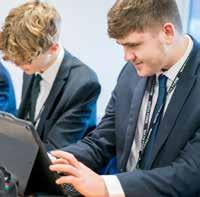
We will develop student’s knowledge and understanding of basic principles of Business whilst also developing key transferable skills such as the ability to work as a team and presentation skills. Throughout the two years students will learn about techniques from how to recruit staff, motivate them and train them to give your business a competitive advantage; to recognising the importance of key financial data such as profit and loss accounts and why businesses must monitor their financial performance at all times. Year 12 (first year) An introduction to key business areas: marketing, operations, finance and human resource management. This includes a special focus on decision making – particularly how decisions made in one area can affect the rest of the business. Year 13 (second year) An investigation of the strategic decisions that all businesses have to make
An economic understanding, become financially literate organisation skills, decision making skills, communication skills, problem solving, building confidence, presentation skills being able to work independently and as part of a team, The ability to make a reasoned judgement, critical thinking skills literacy development. With a focus on helping you to become a good decision maker, you’ll learn essential managerial skills, alongside techniques to help you become an analytical
problem solver. These skills are all highly sought after and valued in a wide range of careers.
A-level assessment consists of three x 2 hour written exams taken at the end of the two year course. Each exam will be worth a third of the A-level. All three papers will draw on material from the whole course, and will feature a range of question styles including multiple choice questions, short answer questions, essay questions, data response questions and case studies.
If you’d like to study business, finance or management at university, A-level Business provides an excellent foundation. The skills you learn are transferable across a broad range of subjects and careers. Whatever you choose to do in the future, you’ll find that the things you learn in this course will help. For example, you’ll probably work with lots of different people, so knowledge of motivational theory will help you to work well with others and help them achieve their potential. You might have ambitious plans to start your own business. If that’s the case, you’ll find the marketing and finance topics particularly useful.
Throughout the two years there will be opportunities for educational visits and guest speakers. Students are offered the opportunity to participate in an enterprise or investor challenge.
The world in which we live is dominated by businesses big and small. A Level Business is an exciting and interesting subject which can help you to understand the world in which we live.
Businesses are dynamic organisations which reflect the values of society and the people working within them. A study of business will help you to gain an insight into both.
Head of Department: Mrs R Simpson simpson@tahs.net
For separate science GCSE level 6 in Chemistry is preferred, for combined science 7-7 is required. Students with grades not meeting criteria are subject to Head of Department approval.
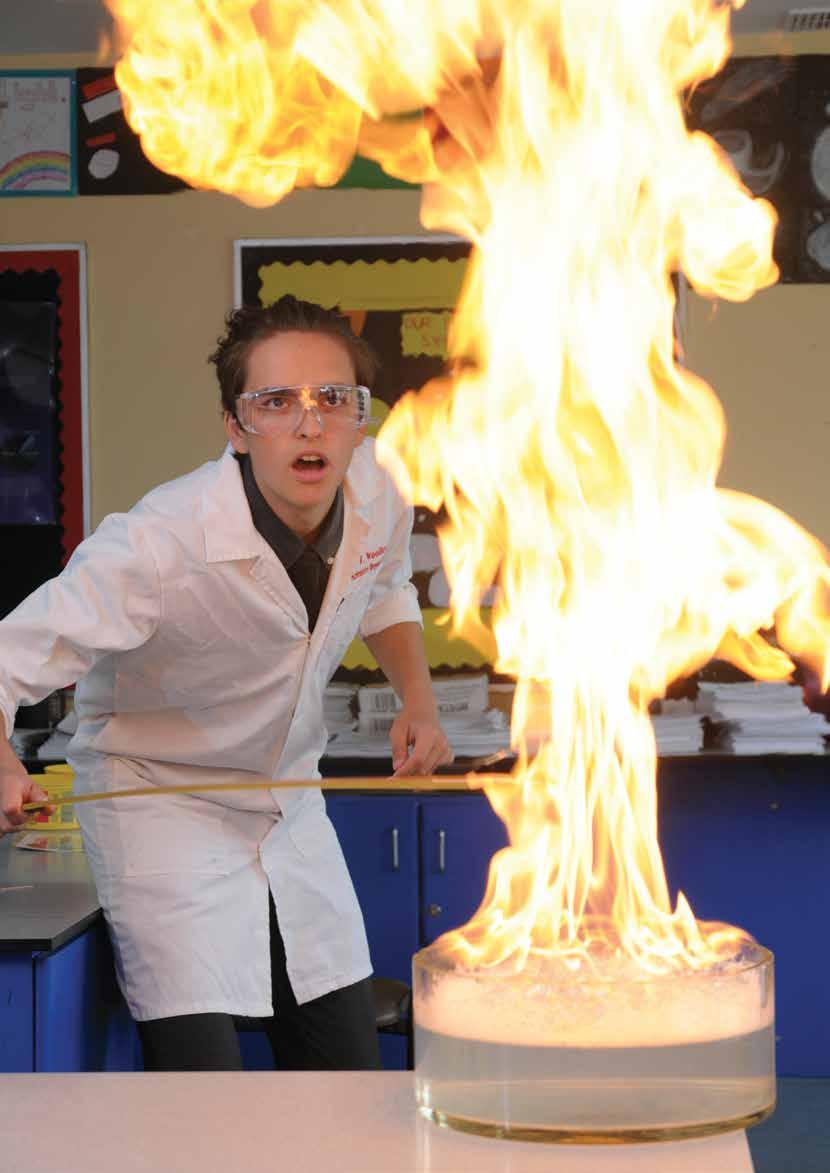
CORE SKILLS
Studying chemistry is an interesting and challenging experience designed to link key chemical ideas and understand how they relate to each other. The course will lead to the development of transferable skills including investigating, problem solving, research, decision making, mathematical skills and analytical skills. Emphasis throughout the course is on developing knowledge, competence and confidence in practical skills and problem solving. You will learn how society makes decisions about scientific issues and how sciences contribute to the success of the economy and society. A good grounding in Mathematics at GCSE is recommended due to calculation work. Students are also required to complete independent work to further their knowledge and understanding.
The areas of study will include:
• Atoms, compounds, molecules and equations
• Amount of substance
• Acid–base and redox reactions
• Electrons, bonding and structure
• The periodic table and periodicity
• Group 2 and the halogens
• Reaction rates and equilibrium
• pH and buffers
• Enthalpy, entropy and free energy
• Redox and electrode potentials
• Transition elements
• Organic chemistry
• Polymers
• Organic synthesis
• Analytical techniques (IR and MS)
• Chromatography and spectroscopy (NMR)
Written assessment.
• Total of 6 hours of examinations (2 x 2 hours 15 minutes and 1 x 1 hour 30 minutes) taken at the end of the course.
• A wide range of question types including multiple choice, short answer and extended response questions.
• Opportunity to demonstrate your knowledge of both theory and practical skills through the examinations.
Practical Endorsement. You will be expected through a range of experiments to display your competency in:
• Following procedures
• Applying an investigative approach when using instruments and equipment
• Working safely
• Making and recording observations
• Researching, referencing and reporting.
• Students will gain a separate pass or fail for the practical endorsement.
POSSIBLE CAREER PATHS
A Level Chemistry A is an excellent base for a University degree in healthcare such as medicine, pharmacy and dentistry as well as the biological sciences, physics, mathematics, pharmacology and analytical chemistry. Chemistry is also taken by many law applicants as it shows you can cope with difficult concepts. Chemistry can also complement a number of arts subjects. Chemistry offers a range of career opportunities including chemical, manufacturing and pharmaceutical industries and in areas such as forensics, environmental protection and healthcare. The problem solving skills are useful for many other areas too, such as law and finance.
SUBJECT WORKS WELL WITH Biology, Physics, Mathematics
A Level Chemistry will give you an exciting insight into the contemporary world of chemistry. It covers the key concepts of chemistry and practical skills are integrated throughout the course. You will learn about chemistry in a range of different contexts and the impact it has on industry and many aspects of everyday life.
The chemistry content is challenging. However through perseverance and the guidance of teachers it becomes a hugely rewarding subject.
A real passion to learn coding.
A grade 6+ at GCSE Computer Science. Students achieving a grade 5 will be considered on an individual basis.
Some experience of or a willingness to explore a second programming language is preffered.
Students will develop their skills in:
- Computational thinking. Practical experience of solving problems including creating programs to do so.
- Analysis techniques. Both in set tasks and during the NEA work students will need to work closely with their tutor to investigate, trial and analyse a solution specific to their individual interests.
- To think creatively, analytically, critically and logically.
- A greater understanding of the fundamentals of computer systems. This is developing key concepts introduced at GCSE including data representation, algorithms, system architecture and logic.
- Mathematics for Computing.
The course is assessed using two written papers and a programming project. The two papers are 2 hours and 30 minutes each and are split into:
- Computer systems
- Algorithms and programming
As students will have studied GCSE Computer Science this is a format they are already familiar with.
The addition at A level of the programming project is worth 20% of the overall marks. Students will need to analyse a problem of their choosing, design, develop and evaluate the solution they created.
The qualification is designed to equip students with the fundamental knowledge needed to pursue any career where an understanding of computers is required. This may be a software developer, forensic computer scientist, games developer, web designer or indeed one of the many jobs in Computing that we don’t even know we need yet.
Students will get the opportunity to take part in a Computer Science in Action event. This has historically been either attending a day or lectures at a University or a virtual attendance. These are truly inspiring days where lecturers in the very cutting edge of technology explain in A level accessible terms elements of their thesis. Students find this an enormous help in really opening their eyes to the possibilities of what is yet to come and what may be feasible in their own project.
Computer Science has a wide range of subjects that compliment it. Mathematics is the most obvious choice with a minimum of 15% of the paper being math based questions. It works well with any of the other sciences, MFL or Business. Depending on career choice it may be suitable to pair with something less obvious like Music or Art.
Clarification point. ICT is the use of software developed by someone else e.g. Word or Publisher. This is not an ICT course. Computer Science is the development of software yourself. A large element of this course is programming which is why previous programming experience is so essential.

Computer Science is a practical subject that investigates and solves real world problems using techniques taught within the classroom. In this modern, yet ever changing world, it equips students with the skill set to become malleable for whatever the future of Computer Science holds.
Design and Technology gives me the opportunities to be creative and innovative. It has taught me how to problem solve and generate solutions for real life problems. I learn new skills weekly and have the freedom to experiment with a wide range of materials, tools and equipment. The facilities are great and the staff are excellent and help every student reach their full potential.
Head of Department: Mr R Quigley quigley@tahs.net
This course covers 2 strands: Resistant Materials and Graphic Products. Please note Food Technology is currently not offered at A Level
‘Vorsprung durch Technik’ as the Germans say. ‘Better by Design’ as the English say. Design and Technology at this level gives the opportunity for a diversity of outcomes, including graphics, packaging and product design.
We prefer a grade 6 at GCSE in D&T. Those who take the subject at this level normally fall into two categories; you are either thinking of a career in this field or simply enjoy the subject and wish to further your appreciation of design and its impact on our environment. The course permits a broad and balanced approach to design and technology. The syllabus encourages innovation, takes account of the varied interests of the student and enables you to learn about design in a design, make-evaluate context. You will also develop an awareness of the social and moral implications of design and technology, aesthetic judgement and the ability to design functionally for a variety of situations.
The following core skills are essential for success in Design and Technology.
Time management - due to the large coursework element which needs to be managed over a long period of time. There
are interim coursework deadlines to help you with this.
Research and analysis - You will need to research into the design context of the products that you are designing and must have good grasp of Product Analysis as this is an integral part of the Design Process.
Design communication - this covers sketching in 2D and 3D, model making, prototyping (including the use of CAD CAM and the lazer cutter + 3D Printer).
Written Communication - There is a significant amount of written work in the coursework element, when annotating design concepts and discussing environmental, social and moral issues.
This is a linear course with one coursework project and one exam taken at the end of Y13. Y12 is structured with 2 mini projects designed to develop skills learned in Y11 with an emphasis on greater detail in your design thinking, sketching, modelling and use of CAD CAM. In the Summer term of Y12 you will start your formal coursework
project. Final Assessment is as follows
Component 1: Principles of Design and Technology – (Exam worth 50% of final mark) All theory is taught across the 2 years for use in coursework annotation and the final exam
Component 2: Independent Design and Make Project – a coursework project similar to GCSE where you design, develop, make and test a product of your choice.
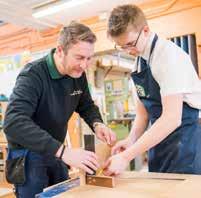
A few careers could include Product Design, Architecture, Industrial Design, Engineering in many different sectors e.g. mechanical, electrical, structural etc.
Packaging Design, Gaming Design, Transport, Graphic Design, Fashion and Textiles. There are many more.
After school engineering club
SUBJECT WORKS WELL WITH Maths, Physics, Business Studies.
Head of Department: Mrs A Mood mood@tahs.net
This course combines challenging academic study with engaging practical tasks. A Level Drama and Theatre allows you to create your own performance work as well as creating theatre, using script. You will develop skills in acting, directing and theatre design as well as critical analysis of live theatre. The course involves both in- school practical and written examinations and outside moderation for performance and coursework portfolios.
COURSE ENTRY REQUIREMENTS
- Grade 5 in Drama or relative subjects i.e English
- Creativity, focus and commitment
- An awareness of dramatic techniques
- A willingness to work both independently and in a group setting
CORE SKILLS
- Independent learning
- Key aspects of social, political and cultural contexts are explored
- Kinaesthetic teaching and learning to motivate the students
- Exploration of a range of themes
- Difficult deadlines means that students have to be organised
- All aspects of theatre are taught in depth
- Theory taught in workshop sessions
- Presentational skills
- Independent research and analysis
- Organising timetables and structure of rehearsals
- Preparing costume, props and set
- Critical thinking
- Writing extended commentaries
- Attending extra sessions in preparation for examinations
- Creativity and problem solving
- Teamwork and meeting deadlines
- Development of confidence and self expression
- Oracy/Public Speaking
ASSESSMENT
Component 1 - Devising (practical and written portfolio) 40% of qualification
Component 2 - Text in performance (practical, scripted performance) 20% of qualification
Component 3 - Theatre makers in practice (written examination including a live theatre review) 40% of qualification

POSSIBLE CAREER PATHS
- Drama school courses
- Theatre in education course/ vocations
- Teaching
- Media - PR - University
- Combined theatre and English degrees
- Theatre administration
- Back stage and productions
- Drama qualifications are valued for Law courses at Russell group Universities and Oxbridge
EXTRA
This course allows you to use the skills that would be required in school productions. This course is led by specialist staff, experienced in professional acting and directing. To enhance knowledge and understanding of Theatre , A Level Drama students are encouraged to absorb a wide variety of the arts in their enrichment including visual art, dance, musical theatre and theatre design and production. The course offers a wide range of extracurricular opportunities including pricipal roles in the school production, opportunities to direct younger year groups, workshops with professional companies and theatre trips (local and national).
The Drama department works in collaboration with the Regent Theatre, Stoke as well as Staffordshire University. Recently we hosted a performance by the National Theatre.
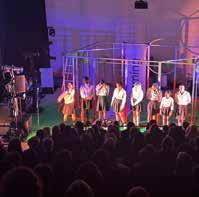
SUBJECT WORKS WELL WITH All other A Level subjects as it develops transferable skills such as:
- knowledge and understanding
- analysis
- ability to construct and articulate arguments
English Language is a brilliant course taught by passionate teachers who are willing to adapt for all student’s needs. My favourite part of the course is learning about Global English as we had a lady come in to talk about her South African accent and this history behind it.
Head of Department: Mrs R Hunt hunt@tahs.net
A Level English Language is a course designed to develop your knowledge and enjoyment of English. It introduces students to the formal study of the English Language - its organisation and structure and the variations in how people use and learn language when speaking, reading and writing.

Grade 6 at GCSE is required, however the department is happy to meet with students who have achieved grades below this and wish to complete the course. The English department will talk to teachers to see whether a student has the required attitude to complete the course.
Although this course naturally builds on the skills developed at GCSE, the A Level takes the study of Language into new and interesting places. With a grounding in the study of real life language use, students will explore the ways in which language shapes and challenges our understanding of the world; how English has developed over time; how children acquire language; and the role English plays in the wider world.
You will learn how to critically analyse texts produced for a range of contexts - both formal and informal - and explore the ways in which those contexts have influenced the language used. Your ability to use precise terminology, which has begun in GCSE, will be extended. Skills of academic discourse are developed through critical analysis but also through individual investigations, where real life data is sourced and studied. Moreover, English Language students produce their own creative writing in both fiction and non-fiction genres as part of the coursework component.
Paper 1 - Language, the individual and society (2 hours, 30 minutes; 40% of the A Level)
This paper covers critical reading and comparative skills, plus an exploration of children’s language development.
Paper 2 - Language diversity and change (2 hours, 30 minutes; 40% of the A Level)
This paper requires a discursive essay relating to either contemporary or historical language use; plus a comparative analysis of contemporary writing about a language issue. This paper also has a creative component.
Non Examined Assessment - NEA (20% of the A Level)
Assessed by your teachers and moderated by AQA, this component is in three parts: a language investigation of your choosing; a creative writing piece and an accompanying analytical commentary.
English Language prepares you for careers which require good communication skills such as publishing, public relations, marketing, journalism, management, the legal profession, teaching and many others.
These skills and competencies are recognised by employers in all fields who put a high value on people who can construct a clearly expressed argument; who can present ideas concisely, logically and clearly; who can make a critical analysis of a piece of writing; who can deal competently with a large amount of complex information; and who can show initiative in conducting independent research.
Students have attended language conferences and hosted visiting speakers as part of this course. Students may also have the opportunity to work with young children as part of their child language studies.
Anything. The data-based nature of English Language complements subjects including the Sciences, Maths and Social Sciences. The analytical elements supports the humanities, and there are clear links from both aspects to Psychology, History and English Literature.
Head of Department: Mrs R Hunt hunt@tahs.net
A Level English Literature is a subject which allows you to build on and develop your reading and discussion of Literature. If you have enjoyed the texts you studied at GCSE and if you like reading in your own time, then English Literature is well worth considering.

Grade 6 at GCSE is preferred, however the department is happy to meet with students who have achieved grades below this and wish to complete the course. The English department will talk to teachers to see whether a student has the required attitude to complete the course.
You will read novels, plays and poetry. You will also be expected to develop your understanding further by writing essays and making presentations on the texts studied. This is a course where you will be given frequent opportunities to express your views, and listen to the views of others. Some texts and ideas that you encounter will be challenging and will stretch your understanding.
Students can expect to develop skills of analysis, through close reading of texts. Students will be given the opportunity to read a wide range and style of texts as well as researching texts, themes and authors independently. They will also develop discussion skills and how to work with a group to develop ideas. Finally students will consider how to plan and organise their ideas logically.
A Level 2 year course
Paper 1: Love through the ages
Study of three texts: one poetry, one prose text and one Shakespeare play. The exam will include two unseen poems. Assessed on a 3 hour, open book exam worth 40% of A Level.
Section A: Shakespeare: one passage-based question with linked essay
Section B: Unseen poetry: compulsory essay question on two unseen poems
Section C: Comparing texts: one essay question linking two texts
Paper 2: Texts in shared contexts
WW1 and its aftermath
Study of three texts: one prose, one poetry, and one drama, of which one must be written post-2000. Exam will include an unseen extract. Assessed on a 2 hour 30 minutes, open book written exam worth 40% of A Level.
Section A: Set texts. One essay question on set text
Section B: Contextual linking of one compulsory question on an unseen extract and one essay question linking two texts.
There is also a non-examination assessment which takes the form of an independent critical study of texts across time. Assessed by a comparative critical study of two texts, at least one of which must have been written pre-1900 which takes the form of an extended essay of 2,500 words which is worth 20% of A Level.
Through studying English Literature you’ll gain skills that are applicable to a broad range of career opportunities, including Teaching, Public Relations, the media (publishing, journalism, advertising etc.), business and administration. You’ll have learnt to read, discuss, analyse and write about a wide range of texts and to conduct independent research. These skills and competencies are recognised by employers in all fields who put a high value on people who can construct a clearly expressed argument; who can present ideas concisely, logically and clearly; who can make a critical analysis of a piece of writing; who can deal competently with a large amount of complex information; and who can show initiative in conducting independent research.
There will be opportunities to visit the theatre or cinema to see versions of the text and to attend conferences to hear lectures relevant to the course.
English Literature works well with most subjects. The analytical nature of the subject provides a different layer of analysis to subjects like Maths and the Sciences. The depth of study would support reading and knowledge gained in the social sciences or humanities. English Literature provides a fantastic bridge to undergraduate study.
English Literature pushes you out of your comfort zone in the best possible way. Whether it’s doing presentations or acting in a room full of Year 3’s and seeing them really enjoy it.EPQ Centre Coordinator Mrs C Varga
Examination Board: A Level – Exam Board AQA
Course Length: Independent study of around 120 hours
Do you want to boost your qualifications? Or make your applications stand out? Would you like a way of increasing your UCAS points while learning new skills? Then the Extended Project Qualification (EPQ) could be just the thing you’re after.
COURSE LENGTH : SEPTEMBER 2023 - MARCH 2024
Would you like to design and make your own drag dress? Do you want to dive into the current scientific research behind vaping in adolescents or would you like to develop a deeper understanding of the impact of captivity on orca whales? Your EPQ will give you the opportunity to develop your research, planning and independent study skills in a topic that you are passionate about.
All year 12 students will undertake an EPQ (this is optional if they are studying 4 subjects; taking GCSE English or Maths or are studying BTEC National Extended Diploma in Health & Social Care.)
An Extended Project Qualification (EPQ) is an award available to students who carry out a research project on a topic of their choosing. It is worth up to 70 UCAS points, or half an A Level, and will complement your existing academic experience. The EPQ will be delivered by trained specialists during your allocated Enrichment sessions.
The EPQ process involves skills lessons, where you will learn different ways to carry out research, record findings, and how to move to the next stage of the project – all of which are valuable skills which will stand you in good stead for University study
It is a research-based piece of work which requires evidence of planning, preparation, research, analysis, decision-making and independent learning. The EPQ can be an extension of an existing programme of study or can arise from an area of interest.
The skills that sixth form students develop through the Extended Project are directly relevant to and useful for University-level study. Students can refer to the Extended Project in their UCAS personal statements and at interview to demonstrate some of the qualities that universities are looking for.
Getting an EPQ takes time, self-discipline and independent research - guidance and support will be provided by a designated subject mentor.
A finished product may take the form of:
• A research based written report (5,000 words)

• A production* (e.g. charity event, fashion show or sports event etc)
• An artefact* (e.g. a piece of art, a computer game or realised design).
*A written report of 1000+ Words must accompany these options. Students must also record their project process in their Production Log. The process of recording and completing a project is as important as the finished product. Both the Production Log and Product will be assessed.
The Extended Project offers opportunities for learners to:
• Have significant input into the choice and design of an extended piece of work;
• Develop and apply decision-making skills, problem-solving skills, initiative and enterprise;
• Extend their planning, research, critical-thinking, analytical, synthesis, evaluation and presentation skills;
• Use their learning experiences to support their personal aspirations for higher education and career development.
Head of Department: Mr P Noon noon@tahs.net
French A Level is more than just ‘learning French’ - it’s exploring how societies and cultures have changed, how they work today, and how you fit into the world. You will explore all of that through music, film, literature, and discussion, whilst building communication and thinking skills desperately needed in the global jobs market.
You do need to have studied French at GCSE. You should have achieved a grade 6, and students who achieve a grade 5 will be considered on an individual basis.
Universities and employers alike know that A Level MFL students possess and have developed a huge range of skills, including but not limited to:
• understanding spoken and written language from many different sources and in varied registers
• extracting factual and abstract information, gist and specific detail
• communicating precise messages with high accuracy
• analysis and evaluation
• independent research
• presentation and discussion
• intercultural understanding and appreciation ASSESSMENT A Level
Paper 1 Listening, reading and writing - 50% of A Level. Assesses knowledge and understanding of the 4 themes (Society: current trends, Society: current issues, Artistic culture, Aspects of political life), and grammar. Students have control of the listening.
Paper 2 Writing - 20% of A Level. Assesses the book Sac de Billes and the film La Haine.
Paper 3 Speaking - 30% of A Level. Includes discussion of your individual research project, and discussion of one of the sub-themes based on a stimulus card
POSSIBLE CAREER PATHS
You can obviously continue to study French at University, as well as using your A Level as evidence of language learning - this means you could start a brand new language, like Russian, Mandarin, Japanese, Arabic, or German. Combined honours with subjects like Management, International Relations, Law, European History, Politics, Journalism and even Early Years Education are available. It is even possible to take French as a minor subject alongside Medicine. People with foreign language skills, and European languages like French in particular, are needed in every area of work.
According to HESCU (2018) UK MFL graduates entered work in marketing, PR, sales, business, HR, finance, art, design, media, management, science, IT, law and even engineering. Less than 10% of them went into teaching or education.
In addition to MFL Film club each half-term, there will be ample opportunity to support in KS3 and 4 lessons, which will contribute to volunteering awards, and the chance to visit France on a study trip.

SUBJECT WORKS WELL WITH
French complements any and all subjects, both during Sixth Form and in the Higher Education sector. Many students combine languages with Politics, History, Art, Finance, Business, or Economics. Students can even combine it with the sciences and Mathematics as a welcome contrast.
A Level Geography has allowed me to gain invaluable insights into the world in which we live. I have learnt about the intricacies of contemporary issues, such as plastic pollution and climate crisis.
Head of Department: Mrs H Carpenter carpenter@tahs.net
To study and enjoy A Level Geography you need to be interested and very much aware of the world around you. Your A Level Geography course gives you a strong foundation for understanding the two main themes of the subject: human geography and physical geography. Between them, they’re what make our planet tick.
To take up the challenge and enjoy the rewards of Geography it is preferred that you will have achieved a grade 6 or higher at GCSE. If you have not done Geography at GCSE it is still an option for you, but we strongly recommend speaking with a member of the department to ensure you make an informed choice. We follow the EDEXCEL syllabus, which ensures a solid grounding in both the physical and human elements of Geography. In the first year you`ll study the importance of the water cycles, how the sea shapes our coastline, as well as how urban areas are regenerating and how the inter connectivity of our planet is changing over time. In the second year you will study the hazards posed by the tectonic process and how our globe has been effected by changes in health and disease. In each area of study you will consider the values and attitudes of decision makers, consider your own values and attitudes and support your learning of ideas through the study of specific case studies. You will also develop a variety of geographical skills, which will broaden and deepen your existing knowledge.
Geography helps students to develop a number of skills: Undertaking research and analysis/ evaluating information/decision making / critical thinking / teamwork on practical projects/ investigating global issues / numeracy / report writing / ICT Skills

The course is linear which means at the end of the two years you will complete three exams, one physical, one human and one synoptic exam. Each exam is assessed through multiple choice questions, short answers and an extended piece of writing. You will also complete your own
geographical fieldwork investigation on a topic of your choice. This is worth 20% of the A Level
At higher education level the department has links with universities in the delivery of fieldwork and in providing a taste of University life. The department is happy to support ex-students in their higher education through programmes such as the Royal Geographical Society Geography Ambassadors scheme. In terms of careers, success in A Level geography will enable you to go anywhere on earth! You could follow a specialist ‘geographical’ career or because geography is about the interaction between people and our planet, this fascinating subject is valid for a number of different career paths and because of its dynamism, blends very well with just about every other subject available. Geography graduates have the second highest rate of employment after University and two thirds of business leaders would recommend that their own children studied geography because of how applicable it is to the ‘real’ world.
EXTRA CURRICULAR/OPPORTUNITIES
Fieldwork is an integral and vital part of geography and you will have the opportunity to develop skills of data collection, analysis and presentation. You will also have the opportunity to participate in residential fieldwork (usually in the city of Liverpool). International fieldwork has involved trips to Iceland, New York, Morocco and Italy to study a variety of topics and these are supported by local and national visits to Cannock Chase, Derby, Birmingham and London
SUBJECT WORKS WELL WITH Biology, Maths, Business.
29
Head of Department: Mrs C Johnson
johnsonc@tahs.net
Students are given the opportunity to study both recent and early modern time periods, and British and international history at A Level.
Enthusiasm for and an interest in the past and a desire to find out more. A commitment to work hard, independent reading and self-motivation.
A grade 6 at GCSE History is preferred. If you have not taken GCSE History then at least a grade 6 at GCSE English.
Breadth Study
The early modern history unit examines the development of England under the Tudors. Over the two year course you will study:
• The political challenges which faced Tudor monarchs, 1485 - 1603
• Tudor foreign policy
• Developments in Tudor society and the emergence of the nation-state
Depth Study
This modern history unit examines revolution and dictatorship in Russia, 1917–1953.
Over the two year course you will study:
• Causes of the Russian Revolutions in 1917
• The rule of Lenin: Bolshevik consolidation, 1918–1924
• Stalin’s rise to power, 1924–1929
• Stalin’s Rule, 1929–1953
Two examined components:
A) Breadth study: England, 1485 —1603: The Tudors
Part One: Consolidation of the Tudor Dynasty: 1485 – 1547
Part Two: Turmoil and Triumph: 1547 – 1603
B) Russia, 1917–1953
Part One: The Russian Revolution and the Rise of Stalin, 1917–1929
Part Two: Stalin’s Rule, 1929–1953
Historical Investigation
A personal investigation of 4500 words into an aspect of 20th century American history
CORE SKILLS
Universities and employers recognise the knowledge and understanding acquired at A Level and also value the transferable skills that have been developed:
• knowledge and understanding
• analytical skills
• ability to construct arguments
• thinking skills
Two examined components at the end of Year 13:
A) Breadth study: England, 1485 —1603: The Tudors
2 hours 30 minutes written exam – 40% of A Level
B) Depth study: Russia, 1917 - 1953
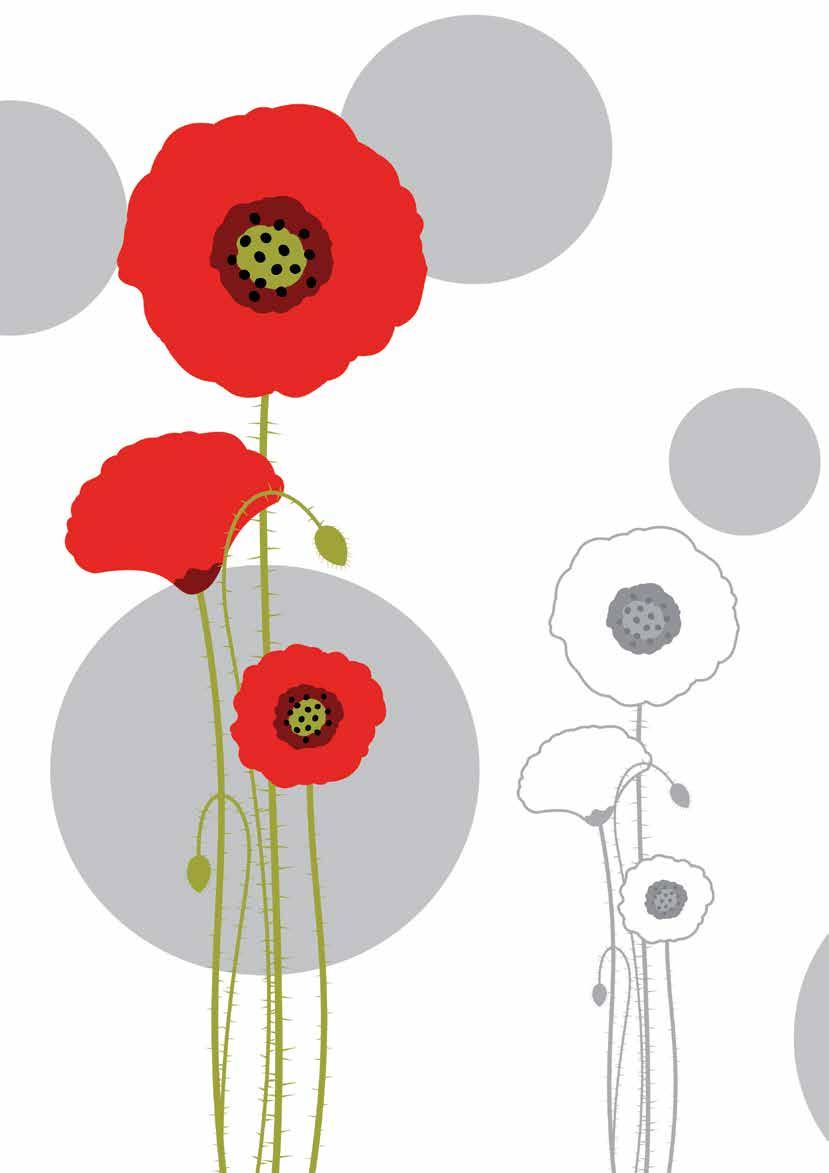
2 hours 30 minutes written exam – 40% of A Level
Historical Investigation
A personal investigation of 4500 words – 20% of A Level
POSSIBLE CAREER PATHS
The A Level history course gives you skills in research, analysis, applying contextual knowledge, written communication and independent study. Therefore, A Level history is respected by both universities and employers.
There are many higher education courses where A Level history is required such as modern history, ancient history, archaeology. There are some courses where history at A Level is desirable such as law.
Career possibilities directly relating to history include being a teacher, museum curator, excavator, researcher. Many A Level history students move into careers as civil servants, lawyers, and accountants - drawing on their skills in evaluating and analysing documentary evidence. History students generally possess high levels of literacy and critical thinking abilities, so are often suited to careers in communications, particularly advertising, marketing, public relations and journalism.
EXTRA CURRICULAR/OPPORTUNITIES
After school coursework club
History Ambassador
After school stretch and challenge club
SUBJECT WORKS WELL WITH
All other A Level subjects as it develops transferable skills such as:
• knowledge and understanding
• analysis
• ability to construct and articulate arguments
This is a really supportive department. Lessons are interesting. We are expected to work hard but the teachers make it fun.
Head of Department: Mrs R Ibbs ibbs@tahs.net
Students must achieve at least a grade 6 at GCSE mathematics and have been taught the higher tier GCSE syllabus. Students will be required to attend the transition lessons in the summer term of Year 11 and to complete an induction assignment. All students will need to purchase the A Level scientific calculator for the course, text books will be provided.
The majority of the course is algebra based, so students must have a good understanding of all the algebra topics taught at GCSE.
In A Level Mathematics students will study pure mathematics, mechanics and statistics. Within these areas they will study functions, graphs, algebraic techniques, coordinate geometry, sequences and series, calculus, trigonometry, vectors, mechanical models, kinematics, descriptive statistics and probability.
Assessment is in the form of 3 x 2 hour written exam papers taken at the end of Year 13. Questions will require use of functions on the A Level scientific calculator and knowledge of the large data set.
During the course students will complete regular written assessments as well as written homework.
Qualifications in mathematics are very much in demand both by employers and by universities. Entry onto many courses but, in particular, those in mathematics, engineering, science, medicine, business, architecture and accountancy is enhanced by a pass in this subject.
Students get the opportunity to attend the ‘Maths Inspiration’ event where they experience some of the UK’s most inspiring maths speakers live, presenting maths in the context of exciting real-world situations. Students can take part in the UKMT Senior Maths Challenge. Students are also encouraged to help out in lower school maths lessons as part of their Community service award.
WITH
A Level mathematics not only supports students studying A Level courses in science subjects but also in subjects such as Psychology, Geography, Design & Technology and Business.
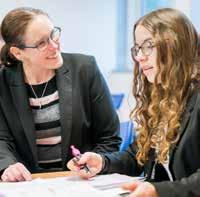
In A Level Mathematics students will study pure mathematics, mechanics and statistics.
A Level mathematics not only supports students studying A Level courses in science subjects but also in subjects such as psychology, geography, design & technology and business.
It’s both challenging and rewarding. You have to work hard if you want to do well but the teachers are really supportive.
A Level – Exam Board Edexcel
31
Head of Departmåent: Mrs R Ibbs ibbs@tahs.net
A Level Further Mathematics takes the principles learned at GCSE and in A Level mathematics and expands them further.
Students must also be studying A Level mathematics in order to study Further Mathematics. Students must achieve at least a grade 7 at GCSE.
A Level Further Mathematics takes the principles learned at GCSE and in A Level mathematics and expands them further.

Students will study Further Pure mathematics, mechanics and Decision maths.
The pure maths enables further study of algebra, an extension of calculus and an introduction to matrices and complex numbers. In mechanics students will learn about kinematics, mechanical models, statics, moments, centres of mass and collisions. In decision maths students will learn about algorithms, critical path analysis and linear programming.
Assessment is in the form of 4 x 1.5 hour written exam papers taken at the end of Year 13. Questions will require use of functions on the A Level scientific calculator and knowledge of the large data set.
During the course students will complete regular written assessments as well as written homework.
The course covers the majority of mathematics needed throughout a degree course in physics and engineering giving students with Further Mathematics qualifications a huge advantage over those without it. Students applying for maths, engineering or science courses at University have a much better chance of being offered a place if they have studied Further Mathematics. More and more University maths courses have it as a requirement.
For ideas on future careers please take a look at this video on YouTube titled ‘Where can studying Mathematics take you?’
Students get the opportunity to attend the ‘Maths Inspiration’ event where they experience some of the UK’s most inspiring maths speakers live, presenting maths in the context of exciting real-world situations. They also have the opportunity to take part in maths challenges such as Mathsbomb and Senior Maths Challenge.
As well as studying A Level Mathematics and A Level Further Mathematics students often also study Physics and Chemistry or Biology.
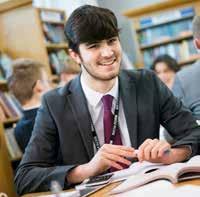
In A Level Further Mathematics students will study Further Pure mathematics, mechanics and Decision maths.
If you love Maths then you will love Further Maths!
A Level - Exam Board Edexcel
• Music is a Science
• Music is mathematical
• Music is a Foreign Language
• Music is History
A grade 6 in GCSE Music is preferred. The student must also be able to play at least one instrument at a good standard (can be voice). Musical Theory Exams such as ABRSM Theory would be beneficial. Research has shown that Music is a highly desirable subject when applying to University to study any course. Studying Music A Level will show that you are able to consistently engage in higher level thinking, apply knowledge in original and ingenious ways, and above all that you are a dedicated, passionate individual.
Students will develop performance skills (solo and/or ensemble), compose music and learn about harmony. They will build up their aural and analytical skills by studying selections from the Anthology of Music and wider listening.
Unit 1: Performance - 30% of the total A Level marks. This unit gives students opportunities to extend their performance skills as soloists and/or as part of an ensemble. Pupils perform an 8 minute recital at the end of the course.
Unit 2 : Compositions and Technical study30% of the total A Level marks. This unit has two sections: composition and technical study.
Head of Department: Mrs L Todd todd@tahs.net
• Music is Physical Education
• Music Develops insight and demands Research
• Music is all of these things, but most of all Music is an Art
Unit 3: Further Musical Understanding - 40% of the total A Level marks. This unit focuses on listening to music, familiar and unfamiliar, and understanding how it works.
The full A Level course is excellent preparation for higher education courses in music, but is equally as valuable for nonspecialists as a second or third area of study.

There are numerous opportunities outside the classroom which Sixth Form students are an integral part of, both in the School and further afield around the world.
We currently run the following extracurricular groups:
String Ensemble/SATB Choir/Wind Band and Jazz Band, plus music tours, where students have been able to perform in prestigious venues such as the Basilica di San Marco in Venice and the Montserrat Monastery Basilica high above Barcelona. Students have also performed in New York and Washington. Students will have the opportunity to take port in concerts within the school setting and in the wider community and to to audition for a role in the school musical as a musician or on stage. Productions have included ‘The Sound of Music’, ‘West Side Story’, ‘Sweeney Todd’ and most
recently in 2022 ‘Grease’. We look forward to imminently announcing the new school musical production scheduled for February 2023.
All other subjects due to music’s transferable skills. In particular Music works well with Drama and History.
Any other subject, including other arts subjects, Stem subjects or the humanities. Music is considered to be a favourable subject to study for any University course or further career pathway. The skills required to study music such as team work, discipline, tenacity, creativity and a high level of academic ability to master the musical language are looked upon hugely favourably by employers and Universities.
A Level Music enable pupils to study appraising music, composing music and performing music. Pupils will study the Edexcel A Level Music Course and focus on 13 set works within the context of studying a broad range of musical genres, including Vocal, Instrumental, Film Music, Pop and Jazz, Fusion and New Directions.
The ethics portion of the course is particularly applicable to the everyday moral landscape debating subjects such as the environment, racism, sexism, medical ethics. It’s important to understand ethical theories such as Utilitarianism (e.g. train track problem) when looking at Brexit vote percentages 49% vs 51% and why it doesn’t always work...it is interesting to look at where philosophers of religion are getting their ideas from and the course gives you an idea of the diversity of religious opinion in itself. I really enjoyed this subject and although there was a lot to know this kept my brain constantly going as you’re forced to reassess or justify why you think the way you think.
Head of Department: Mr J Scott scott@tahs.net
It will allow students a chance to study philosophers work which they will not have looked at before from Plato to Richard Dawkins. Students get the chance to look at the history of religious philosophy from Ancient Greek times to the present day. You will analyse arguments attempting to prove the existence of God as well as looking at theories which suggest religion is a negative and oppressive force. We also study a unit on Environmental Ethics, Sexual Ethics, Medical Ethics and Equality. In addition to the debate between religion and science and the impact of these issues on modern Christianity.
You do not need to be religious but you should have an enquiring mind and be prepared to discuss your ideas. You will need to be open minded and have respect for views that are different from your own.
You will find that a grade 6 or higher in the full course will be helpful preparation for this A Level although the content is new and different.
It will allow students a chance to study philosophers work which they will not have looked at before from Plato to Richard Dawkins. Students get the chance to look at the history of religious philosophy from Ancient Greek times to the present day. You will analyse arguments attempting to prove the existence of God as well as looking at theories which suggest religion is a negative and oppressive force. We also study a unit on Environmental Ethics, Sexual Ethics, Medical Ethics and Equality. In addition to the debate between religion and science.
The course is really aimed at people who want to develop their skills in debate and argument. Pupils are encouraged to develop their ideas and
enjoy the lively debates and discussion the subject stimulates.
CORE SKILLS
• Critical thinking
• Organisation skills
• Decision making skills
• Communication skills
• Problem solving
• Presentation skills
• Being able to work independently
• and as part of a team
• The ability to make a reasoned
• judgement
• How to devise an argument
• Research and Investigation ASSESSMENT
There are three examinations towards the end of the A Level course. One involves a study of philosophy, the second, a study of ethics and the third is a focuses on Christianity and its impact in the modern world.
Ethics
Environmental Ethics Equality
Utilitarianism and ethical theories
War and Peace
Sexual Ethics
Ethics and Language
Religion and morality - do we need religion to be good?
Medical Ethics.
Philosophy
Design Argument - arguments for the existence of God
Religious Experience - does it make sense?
The problem of evil - why too bad things happen?
Religion and Language
Religion and Life after death?
Religion and Science.
Modern Christianity
Beliefs about God
Religion, art and expression
Atheism and the challenge to religion
New developments in Christianity

Religion, equality and Gender
What place does religion have in society now?
POSSIBLE CAREER PATHS
Law, medical research, Social work, Publishing, Media and Communications, Human Resources, Journalism, Politics.
EXTRA CURRICULAR/ OPPORTUNITIES
Lessons from Auschwitz visit.
SUBJECT WORKS WELL WITH History, Geography, English, Psychology.
For separate science GCSE Level 6 in Physics is required, for combined science 7-7 is required. Students with grades not meeting criteria are subject to Head of Department approval.

In addition, students will require Grade 6 or above in GCSE Mathematics. While it is not essential, students who also study Mathematics at A Level often find the mathematical aspects of the course less challenging.
The course is taught with a focus on practical work throughout and lessons typically involve a blend of student led practical work, demonstrations, discussion and guided problem solving. Students are also expected to complete a substantial amount of independent practice in problem solving. A reasonable proficiency in mathematics is required, along with the ability visualise abstract concepts and apply prior learning to new applications.
There are 3 examinations at the end of Year 13.
Modelling Physics (2hr 15min)
Exploring Physics (2hr 15min)
Unified Physics (1hr 30min)
Practical work is assessed throughout the course as skills are developed however this doesn’t affect the final grade.
The topics covered are:
Year 12:
Mechanics, Energy, Materials, Waves, Thermal Physics, Electricity, Capacitors and Quantum Physics
Head of Department: Mr L Melland melland@tahs.net
Year 13:
Circular motion, Oscillations, Gravity and Astrophysics, Fields, Nuclear and Particle Physics, Medical Physics.
POSSIBLE CAREER PATHS
A Level Physics is usually considered an essential prerequisite to further study in Engineering and the Physical Sciences including Physics, Astrophysics and Medical Physics. It is also highly desirable in a wide range of careers and Higher Education pathways including Medicine, Architecture, Geology and Chemistry. As a means of showcasing your ability to think logically, solve problems and apply mathematical techniques, A Level Physics is also well respected in a host of other less obvious career options. In recent years, our A Level Physics students have gone on to study degrees such as economics, agriculture, actuarial science, computer science and Higher Apprenticeships in Business.
In Year 12, students have the opportunity to attend a number of masterclasses and lectures held at the University of Birmingham. Students can also take part in bona fide original research through our affiliation with the Institute for Research in Schools. In previous years, students have completed research to identify targets for the James Webb Space Telescope.
In addition to the activities available in year 12, during year 13 students benefit from the option of a particle physics residential trip to visit the Large Hadron Collider at CERN in Geneva. For those students considering applying to study Physics, Engineering and related Sciences at competitive universities, a course of weekly ‘stretch and challenge’ afterschool problem classes are provided in Autumn.
SUBJECT WORKS WELL WITH Maths, Further Maths, Chemistry, Biology, Design & Technology
Physics is about exploring the world; how it works, how it came into existence and predicting how it will behave in the future. If you are looking for an interesting and rewarding A Level subject that will have wide currency when it comes to applying for Higher Education, then Physics could be the answer.
It’s hard in a good way because it’s so rewarding when you get it.
In Physics, the teachers are really supportive, both in and out of class time.
Head of Department: Mrs L George george@tahs.net
Psychology is a new and exciting subject about our thoughts, feelings and behaviours. You will ask questions such as does cannabis cause schizophrenia? What makes a serial killer? And if the experiences you had before the age of five really do shape the person you are today?
In year 12 you will study a range of topic areas in psychology including how others influence us, how we remember and why we forget, how we form attachments and how does our biology affect our behaviour. You will also explore some psychological disorders, their causes and treatments and look at the ways psychologists scientifically study and research people. In year 13 you will explore the symptoms, causes and treatments for schizophrenia, what makes someone a criminal and why some romantic relationships last and others don’t.
A Level Psychology will give you an understanding of the way people think and why people behave in certain ways. Through studying Psychology you will understand how to read scientific research articles and how to describe this research. You will develop communication, evaluation and critical thinking skills and the ability to present these views in an essay. You will develop a good understanding of the methods and techniques used in social science including statistical analysis.
At A Level there are three exams, each account for one third of your A Level. The three exams last 2 hours and are worth 96 marks each. The exams consist of multiple choice, short answer and extended writing questions.
Psychology offers you an opportunity to gain insights into

ourselves and those we interact with. It is also invaluable for any profession that involves working with people such as medicine, advertising, business, nursing and teaching amongst many more.
A Level Psychology combines well with so many other subjects and provides a good basis for those interested in studying the subject at degree level.
Throughout the two years there will be opportunities for educational visits and guest speakers. In the past other visits have included visiting Sigmund Freud’s house in London and taking part in real psychological research. Guest speakers have included prison psychologists, police officers and university psychologists. Teaching methods will involve group work, projects and student presentations and you will be required to form your own opinions about the research and debates.
Psychology is wide ranging course that compliments almost any combination of subjects.
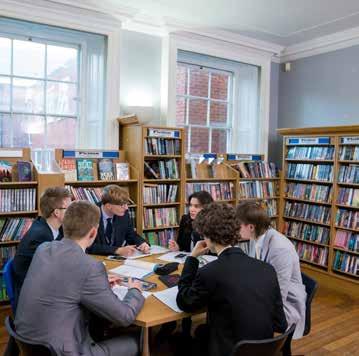
These are national qualifications which focus on the skills and knowledge underpinning a range of broad applied areas.

These applied courses provide a broad introduction to a specific applied area and are designed to allow distinctive teaching and assessment approaches, which use workrelated contexts. These courses are a base from which you can progress either to employment and further specific training or they can help you move on to a higher level of study. Because each covers a broad area and covers a mixture of theory and practical tasks they allow you to keep your options open. Within school we shall be offering applied courses in four areas, three of which will be BTEC Diploma courses.
We are offering applied courses in Health and Social Care, Applied Science, Forensic Science and Sport. Because they are of the same standard as A Levels you will face the same demands from your teachers as other students. Consequently, applied courses must not be thought of as an easier version of other A Levels. They are different, but
equally rigorous and ultimately the same standard. Each applied course is made up of a series of applied units. Units are assessed in two ways. Some are assessed by coursework set and marked by your teachers (this is often called portfolio work). Other units within the A Level double award courses are assessed externally by the awarding body. For these units you may have to do a test, assignment or some other type of work.
Applied courses are open to all students who it is felt will benefit from such a course. The courses are both applied and theoretical with an emphasis on practical applications. It is expected that students will show a high level of commitment to the courses. Applied course staff will help you decide if this is the right course for you. It may be possible to combine a course with another A Level.
The amount of support Thomas Alleyne’s has given me has been second to none. The opportunities have been amazing and I could not have asked more of a school.
37
Head of Department: Mrs L George george@tahs.net
This vocational course should appeal to students who want to work in a field relating to health care, education or social care. The course covers many aspects of health and care work such as the services that are available and how people access those services, the need for effective communication as well as biological, sociological and psychological aspects of health and care. In addition, all students undertake one day a week compulsory work placement in a health or care setting. Students on this course are very successful with many students achieving triple distinction star (D*D*D*) - the very highest grade available. This course is equivalent to 3 A levels
• 5 GCSE passes at grade 4-9
• You do NOT need to have studied Health & Social Care in years 10/11 to take this course
• Hardworking
• Enthusiastic
• Committed to completing coursework
• You must pass a DBS Criminal Record Check.
You will study human development across the lifespan and how our life experiences affect us. You will also look at the different job roles and responsibilities of those working in the health and care sector and you will examine the different types of health care and social care and how these are applied to different individuals.

There are 13 units, 8 of which are assessed through assignments and 4 are assessed through external examinations. You take two exams in year 12 and two exams in year 13. This largely assignment based approach should appeal to students who enjoy and do well in coursework.
The assignments will cover topics like dementia, physiological disorders, health promotion and mental health.
BTEC National Extended Diploma in Health & Social Care is a widely recognised and respected qualification by both Universities and employers. On completion you may seek employment directly in a health or care field or you may choose continue into higher education towards careers such as nursing, social work or early years teaching. Achieving a triple distinction is equivalent to 3 A grades at A Level. Health & Social Care is also available in school as a single award extended certificate which is equivalent to one A Level which can be taken in combination with 2 or 3 other subjects.
You will spend four days a week in school and one day each week in a health or care placement. This will enable you to get hands on, real world experience of working in a health or care setting and to work as part of a health or care professional team. This is fantastic preparation for an apprenticeship, a job or a university course in your chosen career area.
Head of Department: Mrs L George george@tahs.net
Exam Board: Pearson BTEC
Health & Social Care will give you a broad introduction to the health and care field encompassing a “real world” approach. This course should appeal to students who want to have an interest in working in health care, education or social care. You will cover a range of health and care topics such as studying the services that are available and biological, sociological and psychological aspects of health and care.
• 5 GCSE passes at grade 4-9 or merit in BTEC course
• You do NOT need to have studied Health & Social Care at GCSE or BTEC to take this course
• Hardworking
• Enthusiastic
CORE SKILLS
You will develop strong skills in time management, interpersonal relationships, communication, motivation and independent study. In addition, you will increase your skills in academic literacy, statistical analysis, numeracy and research. By putting together evidence for your portfolio you will further develop skills in report writing, essay writing and presentational skills. You will study human development across the lifespan and how our life experiences affect us. You will also look at the different job roles and responsibilities of those working in the health and care sector and you will examine the different types of health care and social care and how these are applied to different individuals.
You will complete 4 units- two examination units and two assignment based units. This portfolio based element should appeal to students who enjoy and do well in coursework.
This course combines really well with sciences such as biology or social sciences such as Psychology and is designed to provide a progression route into higher education, further training or employment. Students who have completed this course have gone on to study pharmacy, mental health nursing, midwifery and radiography.
Health & Social Care is also available in school as a triple award extended diploma which is equivalent to three A Levels.
There will be guest speakers from a range of health, care and education settings and you will be given opportunities to visit universities and health & social care settings.
• 5 Grade 4-9 GCSE passes with a strength in Science and Maths.
• At least level 55 in Combined Science or 555 in Triple Science.
• A recommendation from your current science teacher regarding suitability, in particular, a proven record of completing course work.
• A strong work ethic and an enthusiasm for science.
• This is the equivalent of 1 A Level and will be taken in one option block.
• Must have at least a level 4 in maths.
The course covers aspects of physics, chemistry and biology with a particular emphasis on practical investigations. It provides a route to employment in the science industry or for entry into science based courses at higher education institutions. The course should appeal to learners who enjoy a more practical based approach to science and prefer portfolio based assessment rather than examinations.
You will develop excellent laboratory and practical skills. Both independent study skills and good team working will be essential for successful completion of the course as well as extended writing and presentation skills. The application of knowledge and learning into real life scenarios is a core element of this course.

This is via externally assessed examination and an internally moderated portfolio of evidence. This is made up as follows:
• 2 externally assessed units worth 58% of the total award
• 2 internally moderated units worth 42% of the total award
Students will complete 3 Mandatory Units and 1 Optional Unit to include:
This is an examined unit which is divided up into biological, chemical and physical sciences. In biology, learners will study the ultrastructure of cells and how these cells are arranged into tissues and organs with an emphasis on the nervous system, respiratory system and muscles. In chemistry, learners will study periodicity and the properties of elements together with the production and uses of these substances. In physics, learners will study waves and their use in communication.
I really enjoyed the BTEC course because it involved a range of different practical activities and has increased my confidence when working in the laboratory. The assessment module, which includes producing a portfolio of work, reduces the pressure of exams and allows work to be completed throughout the two years.
This is internally moderated via a practical portfolio of evidence. Learners will be introduced to a range of quantitative laboratory techniques through extensive practical work to include calibration, chromatography, calorimetry and laboratory safety
This is an examined unit in which learners will cover the stages involved and the skills needed in planning a scientific investigation through a range of different activities: How to record, interpret, draw scientific conclusions and evaluate
This is internally moderated via a written portfolio of evidence. Learners will focus on the physiological make up of three human body systems (musculoskeletal, lymphatic and digestive), how the systems function and what occurs during dysfunction.
Science based degrees including physiotherapy. Sports based degrees including sports science and coaching. Degree level apprenticeships or jobs in science based industries
There will be the opportunity to use facilities at local universities and to gain practical knowledge from local practitioners. We would also encourage all students to organise some work experience during the school holidays in order to apply the skills they have learnt to practical situations.
Applied science works well in combination with any other A level or BTEC qualification to provide a broad and balanced curriculum post 16.
Head of Department: Mr C Barrow barrow@tahs.net
Exam Board: Edexcel
COURSE ENTRY REQUIREMENTS:
Preferred - BTEC D equiv. Core Skills- Science, English and general sport knowledge
This course is the equivalent to 1 A-Level. It consists of 4 units - Anatomy & Physiology, Fitness Training & Programming, Professional Development In The Sports Industry and Fitness Testing Since assessments will be continuous and throughout the course students will be expected to produce high quality work both in practical and written form. Researching and reading around the subject area outside of the classroom is essential to gaining a good grade.
CORE SKILLS
• Independent thinking
• Research and analysis
• Communication
• Information Technology
• Responsible citizenship
ASSESSMENT
ASSESSMENT BTEC Extended Certificate 2 external exams worth 67% of the total award and 2 units of coursework worth 33% of the total award
Anatomy & Physiology, Fitness Training & Nutrition, Fitness Testing, Careers in Sport
POSSIBLE CAREER PATHS
Sport Science, Sport Development, Sport Coaching, Gym Instructor, Health Care, General Science.
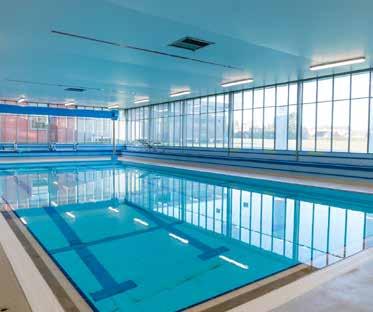
EXTRA CURRICULAR/OPPORTUNITIES
Sport Performance, Coaching & Sport Science.
SUBJECT WORKS WELL WITH Sciences, Health & Social Care, Psychology, BTEC IT or with any other courses.
This course is an excellent progression from BTEC Tech Sport, Activity & Fitness and is also suitable for anyone with an interest in the Sports Industry.
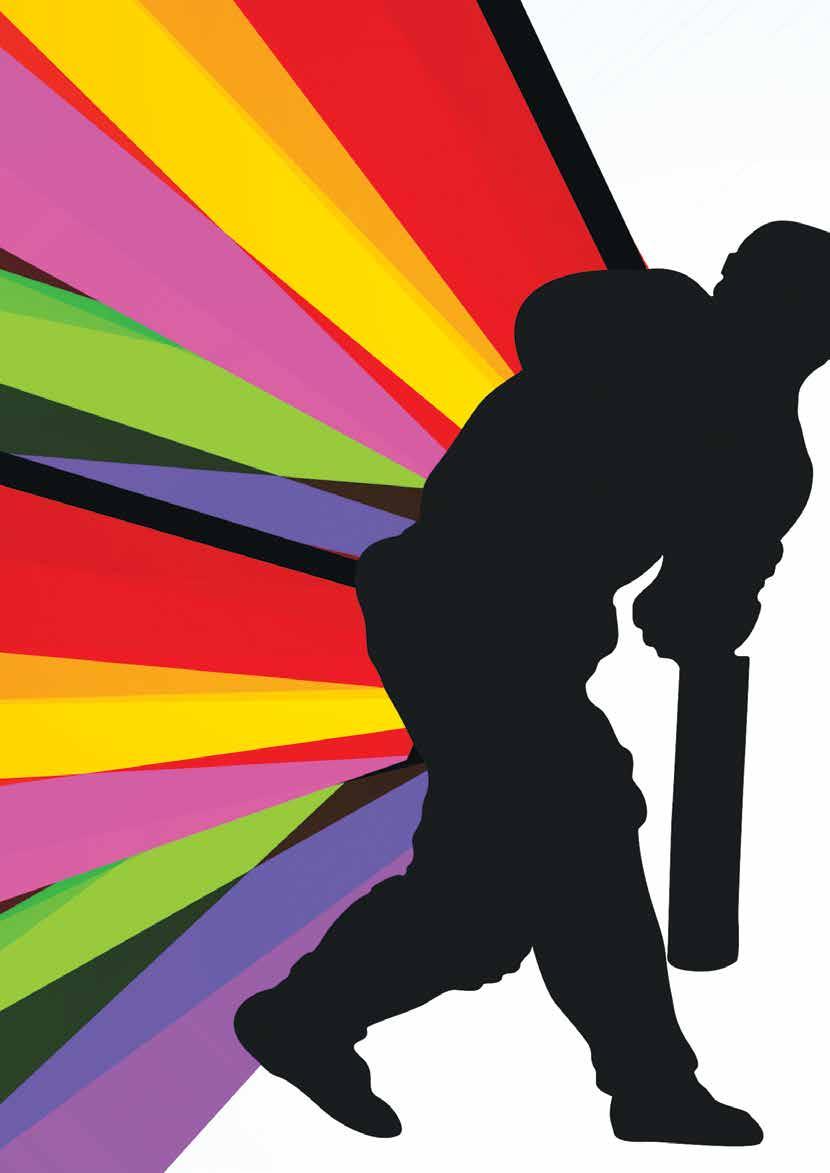
I enjoy the range of learning styles and assessments in BTEC Sport. I feel the skills learnt have benefitted my other subjects.
COURSE ENTRY REQUIREMENTS
• 5 GCSE passes at grades 4-9 with a strength in science and maths
• At least grade 55 in Combined Science or 555 in Triple Science
• A recommendation from your current science teacher regarding suitability, in particular, a proven record of work on time.
• A strong work ethic and an enthusiasm for science
• Should have a grade 4 in maths
BTEC National Diploma is the equivalent of 2 A Levels and will need to be taken in two option blocks. One of these option blocks will be taught alongside the BTEC Applied Science. Learners will complete 6 Mandatory Units and 2 Optional Units chosen by the teacher. Four of the units are the same as the BTEC Applied Science and will be taught in conjunction with this course (please see details under this subject). The other four units include:
Forensic Investigation Procedures in Practice
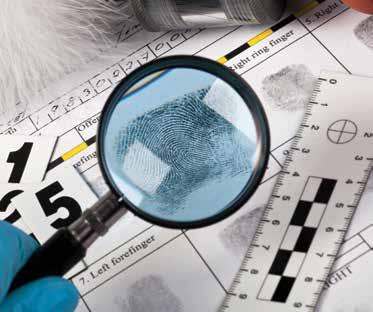
This is an internally moderated unit with a strong practical emphasis. Learners develop techniques in collecting, analysing and reporting chemical, physical and biological evidence during forensic investigations.
Applications of Criminology
This is an examined unit in which learners examine selected theories of criminology that are used to explain, measure and tackle crime and criminal behaviour in England and Wales.
Criminal Investigation Procedures in Practice
This is an internally moderated unit in which learners will study the legal framework, criminal law and techniques used during criminal investigation. Learners develop communication skills and experience while giving evidence in a mock trial.
Forensic Genetics
This is an internally moderated unit in which theoretical understanding of heredity and genetic engineering is combined with their practical application to forensic science.
CORE SKILLS
You will develop excellent laboratory and practical skills. Both independent study skills and good team working will be essential for successful completion of the course as well as extended writing and presentation skills. The application of knowledge and learning into
Head of Department: Mrs J North north@tahs.net
real life scenarios is a core element of this course.
ASSESSMENT
This is via externally assessed examination and an internally moderated portfolio of evidence. This is made up as follows:
• 3 externally assessed units worth 46% of the total award
• 5 internally moderated units worth 54% of the total award
ADDITIONAL OPPORTUNITIES
There will be the opportunity to use facilities at local universities in order to carry out genetic profiling techniques. We will also visit a crime scene house where students will process the crime scene and collect evidence for their assignment. In addition, we will visit a court room and take part in a mock trial.
POSSIBLE CAREER PATHS
Degree level courses in forensic science, Criminology and Criminal justice as well as degree level apprenticeships in policing.
SUBJECT WORKS WELL WITH Biology, Chemistry, Physics, Mathematics, Psychology
 Art and Photography work by Sixth Form students
Art and Photography work by Sixth Form students

Sam Heywood: Since leaving TAHS, Sam has worked in the world of finance with global companies such as PWC and EY. His path changed from his initial thoughts about university to eventually taking an apprenticeship. He now owns Burstock Management who provide consultancy services for sustainability and marketing, helping businesses to actively reduce their emissions and lower their costs.
Michael Meakin (TAHS 2013 - 2018): Since leaving TAHS, Michael has worked in numerous positions across Parliament and Government. Michael’s previous roles have included Fast Streamer for the UK Civil Service, Cross Cutting Trade Policy Advisor (Trade Negotiator) for the Department of Business and Trade, Assistant Private Secretary for the Minister for Welfare Delivery in the Department for Work and Pensions, Summer Internship Programme Intern for the UK Civil Service, and Caseworker and Policy Assistant for David Lammy MP. Michael is currently a Senior Policy Advisor for the Department for Education working on the reform of child social care.
Ellie Chatfield: Ellie left TAHS in 2018 with 3 A Levels in History, Product Design and Photography. She moved onto university, completing a Bachelor of Arts degree in Graphic Design at Sheffield Hallam University, graduating November 2022. She has been working at Rolls-Royce for 10 months now on a Graduate scheme in Business and Enterprise.
Milly Radley: Milly was a Senior Prefect at her time at sixth form, from 2017 to 2019. She took a Psychology degree at the University of Nottingham and participated in lots of volunteering, e.g., Childline, peer mentoring, before starting work at one of the biggest mental health charities in the UK (Mind) where she now has her own caseload of patients.


Dale Spratt: Since leaving TAHS, Dale has travelled widely and has had a varied and successful career including the PwC graduate scheme in Consulting and the Ministry of Defence in government and also in the Reserves where he deployed to East Africa in 2022. Dale has a first class degree in chemical engineering. Whilst at TAHS he was Head Boy, and also played in the rugby and football teams
Rosie Dalton: Rosie Dalton is now co-founder of the hugely successful Dalton’s Dairy based in Wootton. Rosie has combined her skills in business, finance and marketing on and her journey from TAHS to local entrepreneur. I attended sixth form from September 2011 to May 2013 and can honestly say I loved every minute of it. I’ve made friends for life and am still in touch with my Sixth Form form tutor. I came away winning the DT award, which fuelled my creative side, and thoroughly enjoyed the subjects I chose: Economics, Business, DT, Art.

Jack Hall: Jack was working as a Smart Buildings Specialist at Scenariio Ltd where he enhanced the services that the company provides for its customers by developing bespoke solutions for smart buildings technology. Jack currently works at Rolls Royce.




